Latest
2024
Jul
Jun
May
Apr
Mar
Feb
Jan
2023
Dec
Nov
Oct
Sep
Aug
Jul
Jun
May
Apr
Mar
Feb
Jan
2022
Dec
Nov
Oct
Sep
Aug
Jul
Jun
May
Apr
Mar
Feb
Jan
2021
Dec
Nov
Oct
Sep
Aug
Jul
Jun
May
Apr
Mar
Feb
Jan
2020
Dec
Nov
Oct
Sep
Aug
Jul
Jun
May
Apr
Mar
Feb
Jan
2019
Dec
Nov
Oct
Sep
Aug
Jul
Jun
May
Apr
Mar
Feb
Jan
2018
Dec
Nov
Oct
Sep
Aug
Jul
Jun
May
Apr
Mar
Feb
Jan
2017
Dec
Nov
Oct
Sep
Aug
Jul
Jun
May
Apr
Mar
Feb
Jan
2016
Dec
Nov
Oct
Sep
Aug
Jul
Jun
May
Apr
Mar
Feb
Jan
2015
Dec
Nov
Oct
Sep
Aug
Jul
Jun
May
Apr
Mar
Feb
Jan
2014
Dec
Nov
Oct
Sep
Aug
Jul
Jun
May
Apr
Mar
Feb
Jan
2013
Dec
Nov
Oct
Sep
Aug
Jul
Jun
May
Apr
Mar
Feb
Jan
2012
Dec
Nov
Oct
Sep
Aug
Jul
Jun
May
Apr
Mar
Feb
Jan
2011
Dec
Nov
Oct
Sep
Aug
Jul
Jun
May
Apr
Mar
Feb
Jan
2010
Dec
Nov
Oct
Sep
Aug
Jul
Jun
May
Apr
Mar
Feb
Jan
2009
Dec
Nov
Oct
Sep
Aug
Jul
Jun
May
Apr
Mar
Feb
Jan
2008
Dec
Nov
Oct
Sep
Aug
Jul
Jun
May
Apr
Mar
Feb
Jan
2007
Dec
Nov
Oct
Sep
Aug
Jul
Jun
May
Apr
Mar
Feb
Jan
2006
Dec
Nov
Oct
Sep
Aug
Jul
Jun
May
Apr
Mar
Feb
Jan
2005
Dec
Nov
Oct
Sep
Aug
Jul
Jun
May
Apr
Mar
Feb
Jan
2004
Dec
Nov
Oct
Sep
Aug
Jul
Jun
May
Apr
Mar
Feb
Jan
2003
Dec
Nov
Oct
Sep
Aug
Jul
Jun
May
Apr
Mar
Feb
Jan
2002
Dec
Nov
Oct
Sep
Aug
Jul
Jun
May
Apr
Mar
Feb
Jan
2001
Dec
Oct
Sep
Aug
Jul
Jun
May
Apr
Mar
Feb
Friday, January 31, 2014
Rhapsody Streamnotes (January 2014, Part 2)
Pick up text here.
Daily Log
Mom's birthday today, one of the few such dates I can remember. Last year Laura broke her leg a couple days before so we really couldn't do much even if I had thought of it (which I'm not sure I did). Would have been the time, as last year was Mom's centennary. But this year, 101 years after she was born, and nearly 14 years after she died, we had a little dinner party. Kathy and Ram came, and so did Jane Burns, who I hadn't seen in nearly ten years, not since the funeral and reception for her husband, my cousin Bob.
I fixed basic Mom-food: chicken and dumplings (one chicken but doubled the dumplings), green beans (boiled, then sauteed with bacon and onion), and broccoli salad (uncooked, with red onion, sultanas, more bacon, and pine nuts -- Mom always used sunflower seeds but I misplaced mine). The classic green beans were home-grown Kentucky Wonders, something I couldn't match, and she cooked them in more liquid -- I had to figure out my own recipe as it was one of many things she never wrote down. The broccoli salad did have a recipe card, which didn't call for the sunflower seeds, and wanted much more sugar than I used. (Also didn't specify green raisins, which I much prefer.) I hadn't really thought of it as one of her standard dishes -- it seems more like something she picked up off a Miracle Whip wrapper than something she learned back in the Ozarks -- until I went to a cousin's house in California and she made the exact same dish.
I figured I'd also make one of Mom's standard cakes, but given that I refused to make dumplings with gluten-free flour that Laura insists on these days, I thought I should cut her some slack with dessert. For that, I made a flourless chocolate cake -- I should post the recipe, but it's basically 8 oz. bittersweet chocolate melted into two sticks of unsalted butter, plus 1.5 cups sugar, six eggs, with 1 cup of Hershey's Special Dark cocoa folded in, baked in a springform pan 35-40 minutes at 350F. Recipe calls for dusting it with cocoa, but that seems superfluous except perhaps to disguise the cracks as it cools. (I have imagined coating the whole thing in ganache, but never done that.) I served it with Haagen-Dasz vanilla bean ice cream -- a nice contrast to the intense chocolate.
Monday, January 27, 2014
Music Week
 |
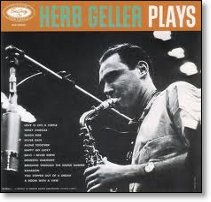 |
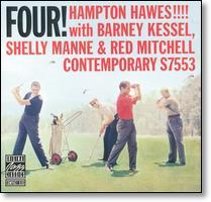 |
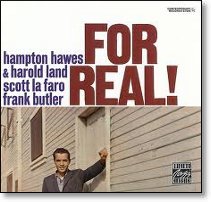 |
 |
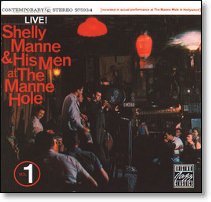 |
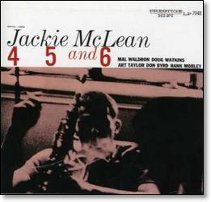 |
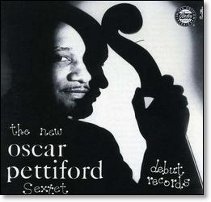 |
 |
Music: Current count 22768 [22739] rated (+29), 578 [574] unrated (+4).
Sending out the publicists letter maked the last step in decoupling myself from Jazz Prospecting. Got quite a bit of mail today -- eight CDs, logged under "unpacking" below but not factored into the rated line -- so this hasn't sunk in. Didn't get much response to the publicists letter: a couple musicians, a label head, and a publicist who may be invested in his labels -- never been clear on that. But the notes were exceptionally kind, and appreciated.
I have 40-50 new jazz records in the queue, and I haven't been in a big hurry to clear them out. Only seven in the rated list below, including my first A- of the new year: the Sonny Simmons duets, rather marginal but I played each disc 3-4 times and they hold up. Still, my rated count remains close to 30, and I may never have found as many A-list albums as I have this week. After I posted Rhapsody Streamnotes last week, I went after a couple jazz reissues and wound up searching through my 1940-50s jazz lists for unheard Penguin Guide 4-star, and occasionally following a sidetrack. I came up with eight above the A- line, and six more just below. Good chance I could keep doing that sort of thing for a long while now.
Or I could do something else. Bought some nails today.
Records rated this week:
- Chet Baker: Broken Wing (1978 [1979], Inner City): plays and sings (if you call it that) [r]: B
- Ruby Braff/Ellis Larkins: 2 x 2: Ruby Braff and Ellis Larkins Play Rodgers and Hart (1955, Vanguard): the start of a beautiful friendship [r]: B+(***)
- Al Cohn/Zoot Sims: Al and Zoot (1957 [1998], Chess): two brothers [r]: B+(**)
- Maya Jane Coles: Comfort (I Am Me): slow house [r]: B+(***)
- Eddie Costa Quartet: Guys and Dolls Like Vibes (1958 [2001], Verve): Bill Evans Trio + vibes [r]: B+(**)
- Barbara Levy Daniels: Love Lost and Found (Bidproductions): standards singer [cd] B+(***)
- Bill Evans: How My Heart Sings (1962 [2013], Fantasy/OJC): piano trio [r]: A-
- Nir Felder: Golden Age (2011 [2014], Okeh): guitar-piano quartet [cd]: B+(***)
- Herb Geller: Herb Geller Plays (1954-55 [1955], Emarcy): West Coast cool [r]: A-
- Hampton Hawes: Four! (1958 [1991], Contemporary/OJC): piano trio + Barney Kessel [r]: A-
- Hampton Hawes: For Real! (1958 [1995], Contemporary/OJC): piano trio + Howard Land [r]: A-
- Jutta Hipp: Jutta Hipp With Zoot Sims (1956 [1996], Blue Note): cozy piano-sax quartet [r]: B+(**)
- Clifford Jordan Quartet: Spellbound (1960 [1993], Riverside/OJC): hard bop with Cedar Walton [r]: A-
- Elly Kouri: I Love You Too Much (2013 [2014], RBR): standards singer [cd] B+(*)
- David Krakauer: The Big Picture (2013 [2014], Table Pounding): great Jewish movie music [cd]: B+(***)
- Harold Land: Harold in the Land of Jazz (1958 [1988], Contemporary/OJC): hard bop quintet [r]: B+(*)
- Harold Land: Damisi (1971-74 [1991], Mainstream): bop sax in a postbop world [r]: B+(**)
- Shelly Manne & His Men: Live! At the Manne Hole Vol. 1 (1961 [1992], Contemporary/OJC): cool jazz, live [r]: A-
- Shelly Manne & His Men: Live! At the Manne Hole Vol. 2 (1961 [1992], Contemporary/OJC): cool jazz, live [r]: B+(***)
- Jackie McLean: 4, 5 and 6 (1956 [1991], Prestige/OJC): bebop and blues [r]: A-
- Jackie McLean: Jackie's Pal: Introducing Bill Hardman (1956 [1991], Prestige/OJC): hard bop horns [r]: B+(***)
- Jackie McLean: Makin' the Changes (1957 [1992], New Jazz/OJC): two sessions: quartet with Mal Waldron, sextet with Curtis Fuller [r]: B+(***)
- Jackie McLean: A Fickle Sonance (1961 [1999], Blue Note): hard bop [r]: B+(**)
- Gil Melle Quartet: Gil's Guests (1956-57 [1990], Prestige/OJC): fancy/elegant horns [r]: B+(***)
- The Gerry Mulligan Quartet: What Is There to Say? (1959 [1994], Columbia/Legacy): pianoless quartet [r]: B+(***)
- Oscar Pettiford: The New Oscar Pettiford Sextet (1949-53 [1999], Debut/OJC): chamber jazz for rowdies [r]: A-
- Judy Philbin and Adam Levine: Keeping It Simple (self-released): voice and guitar [cd] B+(*)
- Sonny Simmons/Delphine Latil/Thomas Bellier: Beyond the Planets (Improvising Beings, 2CD): sax duets with harp and guitar [cd]: A-
- Christine Wodrascka/Jean Luc Cappozzo/Gerry Hemingway: 2° Étage: Grey Matter (NoBusiness): avant piano-trumpet-percussion [cd]: B+(***)
- YAPP: Symbolic Heads (2011 [2013], NoBusiness): free jazz sax-guitar quartet [cdr of lp]: B+(***)
Unpacking: Found in the mail last week:
- Jason Anick: Tipping Point (Magic Fiddle Music): February 18
- Jeff Ballard Trio: Time's Tales (Okeh): advance, February 4
- Bruce Barth: Daybreak (Savant): February 25
- The Beatles: A Jazz Tribute (High Note): February 25
- Tyrone Birkett/Emancipation: Postmodern Spirituals: The Promised Land (Araminta Music): March 25
- Paulinho Garcia: Beautiful Love (Shrinktunes): February 14
- Tim Hegarty: Tribute (Miles High)
- Beat Kaestli: Collage (B+B Productions): March 22
- Matthew Kaminski: Swingin' on the New Hammond (Summit)
- Stan Kenton Alumni Band: Road Scholars Live (Summit)
- James Brandon Lewis: Divine Travels (Okeh): advance, February 4
- Gene Ludwig-Pat Martino Trio: Young Guns (1968-69, High Note): February 25
- Beata Pater: Golden Lady (B&B): March 4
- Akira Sakata/Giovanni Di Domenico: Iruman (Mbari Musica)
- Daniel Szabo/Peter Erskine/Edwin Livingston: A Song From There (self-released): February 18
- Tri-Fi [Phil Palombi/Matthew Fries/Keith Hall]: Staring Into the Sun (self-released): February 25
- Brigitte Zarie: L'amour (NJ Music)
Sunday, January 26, 2014
The David Brooks Problem
At some point during the past decade I came to the conclusion that the single most important economic, political, and social problem we face is growing inequality. The problem it supplanted, preeminent in the 2000s, was war: in particular, the use of armed force to impose a "world order" that was short-sighted and injust. Needless to say, that problem is still with us, but it's faded a bit as all those wars have turned into futile quagmires. Before that, in the relative normalcy of the 1990s, we had the luxury of worrying about more chronic problems, like the long-term effects of anthropogenic climate change and future limits on natural resources -- problems we still face, of course. One could even make a case that all three of these big problems are related: on all three politicians, at least in the US, tend to split the same ways, even though one can construct sound arguments why conservatives should be wary of war and environmental disaster.
On the other hand, the very definition of conservatism -- the political ideology devoted to the preservation of the social order as dominated by whoever is richest at any given time (at various times: the landed aristocracy, slaveholders, merchants, industrialists, financiers) -- both assumes and promotes inequality.
Most conservative arguments reduce to a simple pattern: if we let X happen, we'll start down the slippery slope to communism, socialism, or some such terminal condition -- most of which actually define their goal as a fairer and more equitable society. Which is to say: once you get past the scare words you wind up debating the real question. David Brooks, of course, has no desire to argue that vast inequality is the just order of society and the masses should just buckle under and get used to their lot. As someone practiced in the art of arguing against people's better interests and nobler desires he seeks to obfuscate and confuse the issue, then blame it on someone else, then propose fixes that wouldn't work in the very unlikely event that they were ever tried.
I'm going to do something I haven't done before and quote Brooks' column, The Inequality Problem, in its entirety, stopping every paragraph or so to make some observations.
Suddenly the whole world is talking about income inequality. But, as this debate goes on, it is beginning to look as though the thing is being misconceived. The income inequality debate is confusing matters more than clarifying them, and it is leading us off in unhelpful directions.
What Brooks means is that "suddenly" people like the US President and the elites at Davos are talking about inequality -- people Brooks takes seriously, people of his world. Needless to say, those people, like Brooks, have been a little slow on the uptake. Income inequality has been around forever, but it was considered less of a problem up to about 1980 because incomes from the 1930s into the 1970s, at least in the US, had been trending toward less inequality, and the purchasing power of most incomes had been increasing. Poverty among the elderly, for instance, was largely eliminated by Social Security, introduced in the late 1930s, and the socalled "war on poverty" programs started in the late 1960s at least initially -- until conservatives like Donald Rumsfeld started running those programs -- reduced residual poverty.
From 1980 on, coincident with the rise of conservatives with the Reagan administration, income inequality grew, and by the end of the 1980s the trends were clearly documented. The most obvious case, much commented on at the time, was a shocking increase in CEO compensation relative to average wages. This was accompanied by a wave of leveraged buyouts, the result of lax regulation of financial institutions and the more general "greed is good" culture that the Reagan administration encouraged at every opportunity. Reagan's marginal tax cuts were one such signal. Another was his crushing of the air-traffic controllers union.
Brooks specifies income inequality rather than wealth inequality, which is much more extreme. Ferdinand Lundberg wrote a classic study of the accumulation of wealth in 1937, America's Sixty Families, then updated it, finding little changed, in 1968 as The Rich and the Super-Rich: A Study in the Power of Money Today. The list of billionaires Forbes celebrates each year has become a bit more volatile with new money made from high tech and financial scams, but the concentration of wealth has if anything become more extreme. And the division has become so extreme that in 2008 Occupy Wall Street popularized the notion that a line separates the top 1% from everyone else: that the underclass today is 99% of the population.
As for "confusing matters more than clarifying them," that, as you will see, is Brooks' mission, starting with the next line:
In the first place, to frame the issue as income inequality is to lump together different issues that are not especially related. What we call "inequality" is caused by two different constellations of problems.
At the top end, there is the growing wealth of the top 5 percent of workers. This is linked to things like perverse compensation schemes on Wall Street, assortative mating (highly educated people are more likely to marry each other and pass down their advantages to their children) and the superstar effect (in an Internet economy, a few superstars in each industry can reap global gains while the average performers cannot).
At the bottom end, there is a growing class of people stuck on the margins, generation after generation. This is caused by high dropout rates, the disappearance of low-skill jobs, breakdown in family structures and so on.
Brooks' first obfuscation is his expansion of the haves to the upper 5% of incomes from Occupy Wall Street's 1%. The threshold for the top 5% of incomes was $161,000 in 2012, versus $394,000 for the top 1%. Between 1% and 5% you get into well-paid professionals and small business owners -- well-to-do, for sure, but hardly filthy rich (unless they inherited it). But the real inequalities only grow in the top 1%, so much so that Paul Krugman has suggested we focus only on the top tenth, the 0.1%, where incomes start around $1.9 million and go way up from there. Emmanuel Saez has calculated that 95% of all the income growth since the "recovery" began in 2009 has been snapped up by the top 1%, and two-thirds of that by the top 0.1%.
The bottom 80-90% of Brooks' top 5% may indeed make their money the ways Brooks enumerates, but the very top have different means: with overvalued equity in corporations and/or through the financial transactions that overvalue that equity. (CEOs make most of their "compensation" through stock options, so they gain by this process both coming and going.) This results in a series of bubbles and busts, but as long as the political fundamentals remain strong -- as long as labor markets are too weak to claim a share of productivity gains, as long as antitrust enforcement is too weak to curtail monopoly, as long as regulation is weak and tax enforcement limited -- companies will prosper on paper, even if they wallow in debt, with the rich getting all that much richer.
Since 1980 incomes for the bottom 80% have remained stagnant, and since 2000 they have lost ground. Brooks, like all conservatives, wants to blame this on the "losers," as if, for instance, CEOs had nothing to do with "the disappearance of low-skill jobs." There is no doubt that getting more education and a stable marriage helps individuals to improve their lot, but it's pretty incredible to assert that an increase in dropouts and broken families since 1980 has reversed a trend toward greater income equality under liberal governments from 1933 to 1969 (or later if you're soft on Nixon -- something I can't quite stomach).
Nor is there any real shortage of unskilled jobs these days. They are less likely to be in manufacturing or agriculture, and more likely to be in services, but what distinguishes them isn't the skill level: it's the pay. And wage levels are down almost exclusively due to political pressures. Raising the minimum wage -- a purely political act -- would help, and bringing back unions strong enough to negotiate with management would help even more.
If you have a primitive zero-sum mentality then you assume growing affluence for the rich must somehow be causing the immobility of the poor, but, in reality, the two sets of problems are different, and it does no good to lump them together and call them "inequality."
The economy is not necessarily a zero-sum game. Some businesses, for instance, actually make things that are worth more than the sum of their costs, and those businesses -- their workers, their skills and the technology they employ -- produce added wealth ultimately for the economy as a whole (although who benefits from that wealth depends on the relative power of workers and management, and that approximates a zero-sum game). Other businesses just redistribute goods, and this can also make them more valuable. But there are other businesses which just redistribute costs: they are zero-sum or worse, although they may pretend to add value by inflating assets, creating a bubble which appears profitable until it collapses. A typical example here is what private equity firms do: buy a company at an inflated price, paid for by burying the company in debt; sell off pieces, cut costs elsewhere, and pocket tax breaks; resell the company, preferably to a firm expecting to repeat the cycle. The real effect here isn't to build a productive company but to tear one down by stripping it of its value.
Many financial schemes wind up being cases of the rich screwing the rich -- the 2007 collapse exposed cases of banks knowingly selling worthless securities to supposedly cherished customers -- but there are ways ordinary folks get hit too: their "professionally managed" retirement funds are easy game; they put pressure on many companies to cut jobs and labor costs; they help form near-monopolies which help to drive up prices. And they support politicians who help them save on taxes and regulation, creating even more returns for their predatory practices.
Second, it leads to ineffective policy responses. If you think the problem is "income inequality," then the natural response is to increase incomes at the bottom, by raising the minimum wage.
But raising the minimum wage may not be an effective way to help those least well-off. Joseph J. Sabia of San Diego State University and Richard V. Burkhauser of Cornell looked at the effects of increases in the minimum wage between 2003 and 2007. Consistent with some other studies, they find no evidence that such raises had any effect on the poverty rates.
That's because raises in the minimum wage are not targeted at the right people. Only 11 percent of the workers affected by such an increase come from poor households. Nearly two-thirds of such workers are the second or third earners living in households at twice the poverty line or above.
There are two reasons for the minimum wage. One is that it sets a minimal social standard about the value of work within the context of human life. Basically, if a job isn't worth paying minimum wage for, it isn't something humans should have to do. Secondly, it puts a limit on the relative power of employers and employees. A nation which values its citizens will insist that they be paid decently. Conservatives hate the minimum wage because it limits the ability of employers to bully their employees, and because they generally regard employees as loser scum they feel entitled to abuse.
One can argue further that the minimum wage should be at least the minimum amount it takes for a single parent to support a family above the poverty level. There is no sense in which the current US minimum wage satisfies that requirement. One may fix that by raising the minimum wage, by raising a wage alternative like the earned income tax credit, by reducing the costs of living in other ways -- e.g., through subsidized housing, food, education, health care, etc. -- or by some combination of these. One should take note that subsidies for low-wage workers are effectively subsidies for low-wage employers, which may seem distasteful, but only through subsidies can one even out variable factors like number of dependents.
Like so many right-wing pundits, Brooks cheerfully cites studies with minimal attribution and qualification, with a high likelihood of having been churned out by conservative "think tanks" that are little more than ideological publicity firms. However, even if his data that most minimum wage workers are merely supplementing the incomes of non-poor families, that proves nothing more than that he doesn't understand my first paragraph here: that the minimum wage has to do with the dignity of work -- teenagers shouldn't have to work under abusive conditions even if their parents are adequately paid -- and that the minimum wage is a lower boundary condition: it should be set high enough so that no working person should be denied a decent standard of living (at least within a nation's means).
Also note that changing the minimum wage, even doubling or tripling it, would have virtually no effect on the broader question of equality. It is merely a lower boundary: it says a lot about a nation's sense of decency, but has virtually no power to change the median or balance the spread of the incomes above it.
The primary problem for the poor is not that they are getting paid too little for the hours they work. It is that they are not working full time or at all. Raising the minimum wage is popular politics; it is not effective policy.
It's hard to believe that even Brooks wrote that first line with a straight face. Recall that the current minimum wage is set well below what most families need to be self-sufficient and out of poverty. No doubt some suffer from not being able to get 40 hours of work a week, but some work considerable overtime (probably not paid as overtime, as it is scattered across multiple jobs) and are still not able to escape poverty. Brooks is trying to argue that the fix for their problem is to give them more hours of underpaid work. Clearly, by any standard of decency, they are not being paid enough for their work.
Third, the income inequality frame contributes to our tendency to simplify complex cultural, social, behavioral and economic problems into strictly economic problems.
There is a very strong correlation between single motherhood and low social mobility. There is a very strong correlation between high school dropout rates and low mobility. There is a strong correlation between the fraying of social fabric and low economic mobility. There is a strong correlation between de-industrialization and low social mobility. It is also true that many men, especially young men, are engaging in behaviors that damage their long-term earning prospects; much more than comparable women.
Sorry to interrupt Brooks before his big punch line, but there is a lot to slog through here. These correlations are all true to some not-very-important extent, but the net effect (and most likely the sole intent) of choosing them is to blame the poor for their poverty. To pick out a similar truism on the other side, there is a very strong correlation between inheriting a fortune and making lots of money. (I'd invite Brooks to re-run his examples on a sample of heirs, so we can get an idea of how pregnancy, divorce, dropping out, drug abuse, etc., have on people who start out with a thick cushion of money.)
And from a policy standpoint, I have to point out that a viable alternative to single motherhood is abortion, and that blocking that option both punishes women and adds a drag on the economy. That many people who drop out of high school aren't too dumb -- they just didn't fit in (I'm an example). De-industrialization may be a problem, but but it's hard to see it as a character flaw -- except perhaps of the MBA/CEO class. And I have to wonder whether "engaging in behaviors that damage their long-term earning prospects" isn't a cheap shot at the Army, which may have been a decent jobs program during times of peace but has been an unmitigated disaster the last 12 years.
Low income is the outcome of these interrelated problems, but it is not the problem. To say it is the problem is to confuse cause and effect. To say it is the problem is to give yourself a pass from exploring the complex and morally fraught social and cultural roots of the problem. It is to give yourself permission to ignore the parts that are uncomfortable to talk about but that are really the inescapable core of the thing.
Aside from his confusion about cause and effect, not to mention his inability to distinguish dependent from independent variables when running a correlation, Brooks' third and fourth sentences are truthy enough. But the uncomfortable part he's permitting himself to ignore is class. It's true that class and money aren't exactly the same thing, but they correlate quite well, especially if you start from the beginning. In every example Brooks has cited thus far, more money would make a world of difference -- that single mother could afford childcare, that dropout could find a more suitable education -- and even more so the nurturance of an upper class environment. So perhaps the policy argument should be more than just money.
Fourth, the income inequality frame needlessly polarizes the debate. There is a growing consensus that government should be doing more to help increase social mobility for the less affluent. Even conservative Republicans are signing on to this. The income inequality language introduces a class conflict element to this discussion.
Democrats often see low wages as both a human capital problem and a problem caused by unequal economic power. Republicans are more likely to see them just as a human capital problem. If we're going to pass bipartisan legislation, we're going to have to start with the human capital piece, where there is some agreement, not the class conflict piece, where there is none.
So much here we have to first turn it inside out to make any sense of it. Brooks asserts that we can only implement policy on a bipartisan basis, which gives the Republicans dictatorial control over policy, since they won't agree to any policy but their own. But the Republicans are a minority in Washington now, and are likely to become even more so if voters ever manage to figure out how much they are personally hurt by the party's slovenly allegiance to the 1%. So the first thing Brooks is trying to do here is to steer Democrats away from talking about the issue -- even as "the income inequality frame" but most of all, heaven forbid, as class.
Secondly, he's claiming that Republicans would be happy to do something about "the human capital piece" -- an obnoxious term for working people, reduced to the most miniscule cogs in machinery controlled by money. However, I haven't seen the slightest evidence of any such interest among Republicans -- not since George W. Bush conned Teddy Kennedy into his Trojan horse "No Child Left Behind" law, which did more damage to the public education system it claimed to be saving than would have happened had nothing passed. And that's now regarded as one of Bush's "big government" heresies, something no one in the party defends any more. Rather, all the Republicans seem to care about is cutting taxes, completely undermining safety net spending -- cf. their recent moves on unemployment compensation and food stamps -- and letting businesses run amok with fraud.
Some on the left have always tried to introduce a more class-conscious style of politics. These efforts never pan out. America has always done better, liberals have always done better, when we are all focused on opportunity and mobility, not inequality, on individual and family aspiration, not class-consciousness.
Brooks reaches a bit in his reading of the Democrats, but at least he acknowledges the notion that low wages are indeed "a problem caused by unequal economic power." Still, he misses an important linkage. The "human capital" he's so fond of -- education, although there's really more to it than that -- is only a means for individuals to move up the class hierarchy. Equalizing economic power, on the other hand, is the way to move an entire class to a higher standard of living -- promoting unions is one way to do it, using the government is another. (And, for what it's worth, I'm very fond of the idea of worker-owned companies, which is a private sector solution that moves beyond the conflicts inherent in union-management negotiations.)
Brooks, like most pro-business Americans, likes the idea of equal opportunity and eased mobility, because they leave the class structure and its attendant inequality intact -- they just shuffle the players. Clinton and Obama are in fact good examples of poor boys who worked their way up through the system -- by being very smart, of course, and working very hard, but also because they had unique talents for sucking up to the rich and powerful. They are, or should be, prime examples of the fabled American dream, but rank-and-file Republicans simply loathe them, and their rise coincides with the most ambitious attempt ever to close the American system: to make higher education inaccessible and unaffordable except to the upper crust; to dumb down lower education; to exempt inherited wealth and proprietors and push the tax burden down on the working class, who take home ever less for their toils; to shut down the nation's borders; and to manage the losers through a complex system of jails, courts, and parole, making sure they can't vote.
If we're going to mobilize a policy revolution, we should focus on the real concrete issues: bad schools, no jobs for young men, broken families, neighborhoods without mediating institutions. We should not be focusing on a secondary issue and a statistical byproduct.
Again, Brooks has no clue as to what causes what. Increasing inequality is the thread that runs through dozens of problems. It has multiple causes, some endemic to capitalism, but many of them are purely political. And even those that are endemic may be limited and rendered reasonably safe by political means, once we have the desire and clear thinking to do so. It's been difficult to mount a serious political movement around such a basic problem. I put a lot of the blame on the Cold War, with so much ideological and propaganda investment in demonizing communism and in whitewashing capitalism. Pace Brooks, before WWII large numbers of Americans intuitively responded to populist political campaigns, and if they failed to achieve power, it was usually because liberal reforms blunted the people's direst complaints -- the New Deal being a prime example.
I won't try to prove this here, but there must be much better ways to express the truths that surround the boring statistics documenting increasing inequality. When that happens you'll start to see some real movement on this issue. It is, after all, a profound issue, at the very heart of the left-right divide. Our lives, our survival, hang in the balance.
Even though the column only ran in Wichita today, turns out I'm late to the bonfire. Here are some more links on Brooks:
Eric Alterman: David Brooks Shows His Hand on 'Inequality': "Brooks, like other conservative commentators, seeks to evade the fundamental facts of economic inequality by shifting the ground to cultural, social and 'behavioral' terrain."
Dean Baker: David Brooks' Primitive Defense of the Rich: "David Brooks is sweating hard trying to defend the one percent against the rest of the country and reality."
Josh Barro: David Brooks Is Wrong About Inequality: "David Brooks has a column about inequality today and it's wrong. But it's wrong in a way that helps explain why conservatives have no idea how to talk about inequality."
Matt Bruening: David Brooks' Problem Understanding Inequality: "Brooks points out that because Republicans do not want to do anything to fix inequality, talking about it is just not a good idea politically."
Hannah Groch-Begley: David Brooks Blames Single Mothers for Their Poverty: "Media figures who insist that single mothers are to blame for their own poverty ignore these economic realities, and distract from the conversation we should be having: that all families, regardless of structure, need access to basic social goods like equal pay, family planning, and childcare; benefits which economists have shown would improve the economy and reduce poverty for everyone."
Robert Kuttner: David Brooks's Worst Column Ever: "Alert readers may recall that a few weeks ago, I wrote a piece about Tom Friedman's worst column ever, plugging efforts by a billionaire hedge fund friend to persuade college students that their enemy was Social Security. Now, Friedman's colleague David Brooks has written an even worse column. It's really hard to determine Brooks' worst column ever, since he seems to turn out one every week."
Robert Reich: David Brooks' Utter Ignorance About Inequality: "Occasionally David Brooks, who personifies the oxymoron 'conservative thinker' better than anyone I know, displays such profound ignorance that a rejoinder is necessary lest his illogic permanently pollute public debate."
Wonkette: Millionaire NYT Columnist David Brooks: Poor People Won't Be Poor if They Just Act Like Rich People: "See, when bankers get paid 'perverse' amount of money, that money isn't coming from poor people. It's coming from thin air." And: "Yes, do not take from the rich and give to the poor. This, says the guy who gets a six figure salary to write a shitty column filled with lies every week, would be misguided and would not help them. You would think that giving poor people more money helps them have more money, but that is 'primitive' thinking on your part because the real problem is that Poors do not act like Rich people."
Jordan Weissman: What David Brooks Doesn't Get About the Minimum Wage: "According to David Brooks, the problem with income inequality is mostly just that liberals won't stop gabbing about it. Class consciousness, he writes in his Times column today, is bad for political compromise and bad for America." Also goes into the study cited by Brooks, which turns out not to say what he says it says.
l Matthew Yglesias: David Brooks Invents "Growing Consensus" to Help the Poor: "In a curious column today, David Brooks asserted that Republican Party politicians are deeply concerned about the welfare of poor Americans and that if liberals would just stop being mean to rich people the country could come together and help the poor."
Phil DeMuth: Are You Rich Enough? The Terrible Tragedy of Income Inequality Among the 1%: not on Brooks, but points out how much separates the top from the bottom of the top 1%.
Yves Smith: David Brooks on Income Inequality: Actually, a comment on a 2007 Brooks column, so maybe he had heard something about inequality before last week:
The pronounced shift in income and wealth concentration in recent years, for example, can't be explained simply by those with natural advantages (read smarter, harder working, better educated) doing better. Favorable tax law changes and a rising tide of liquidity (which have kept asset prices high, favoring capital owners over labor sellers) have played a big role as well. And while the public at large may not understand how the rich have gotten so much richer, they can see that the people at the top increasingly live in castle-like homes, fly on private jets, buy mega yachts, in short, enjoy a standard of living unheard of even a generation ago, while their incomes have been largely stagnant, and many work harder than before (for example, there are fewer stay-at-home moms that there were 20 years ago because most families need the second income). Visibly unfair results undermine popular support for limited regulation and income transfers. But many at the top have lost their sense of noblesse oblige, so if there is a backlash, they have no one to blame but themselves.
Martin Longman: Fighting in a Defensive Crouch: This suggests that at least some Democrats (like the dude in the White House) are throwing in the towel and reconstructing their arguments along Brooksian lines, emphasizing opportunity and mobility and playing down inequality and anything with a whiff of "class warfare." Longman objects: "That's fighting on the Republicans' turf using the language of Frank Luntz. When the day comes that the president calls for rich people's heads on pikes, then he'll be divisive. Until that time, he's merely pointing out that the wealth disparity in this country has grown to an historic level, and something ought to be done about it."
Saturday, January 25, 2014
The End of the Year 2013
Robert Christgau's 2013 year-end essay and A-list are available now. I thought I'd start this off by noting the records that made the A-list but didn't get reviewed in his Expert Witness column:
 |
 |
 |
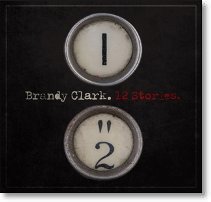 |
- Lady Gaga: Artpop (Streamline/Interscope)
- Eminem: The Marshall Mathers LP 2 (Deluxe Edition) (Aftermath)
- Parkay Quarts: Tally All the Things That You Broke (What's Your Rupture?)
- Kool A.D.: Not O.K. (self-released)
- Brandy Clark: 12 Stories (Mercury)
- Beyoncé: Beyoncé (Columbia)
- Latyrx: The Second Album (Solesides)
- Angola Soundtrack 2 (Analog Africa)
- Four Tet: Pink (Text '12)
- The Road to Jajouka (Howe)
- The Dismemberment Plan: Uncanney Valley (Partisan)
- Yoko Ono Plastic Ono Band: Take Me to the Land of Hell (Chimera Music)
- M.I.A.: Matangi (Interscope)
- Sky Ferreira: Night Time, My Time (Capitol)
- Ezra Furman: Day of the Dog (Bar/None)
- Tom Zé: Tropicàlia Lixo Lógico (self-released '12)
- Jon Hopkins: Immunity (Domino)
- Danny Brown: Old (Fool's Gold)
- Le Grande Kallé: His Life, His Music (Sterns Africa)
- Tamikrest: Chatma (Glitter Beat)
- Kool & Kass: Peaceful Solutions (free download)
- Sleigh Bells: Bitter Rivals (Mom + Pop)
- Those Darlins: Blur the Line (Oh Wow Dang)
- Sidi Touré: Alafia (Thrill Jockey)
- Omar Souleyman: Wenu Wenu (Ribbon)
- White Mandingos: The Ghetto Is Tryna Kill Me (Fatbeats)
- Pusha T: My Name Is My Name (Def Jam)
- Tal National: Kaani (Fatcat)
- Arcade Fire: Reflektor (Merge)
The column ended end of September, so three months (or 25%) short of the end of the year, but the additional totals 29 of 85 records, 34% of the total -- actually, not that unusual, as everyone tends to pick up stragglers toward the end of the year. I should probably knock Omar Souleyman and Latyrx off that list too -- Christgau wrote about the former in Spin and the latter at NPR, pretty much before anyone else was onto them.
Otherwise, not many actual surprises here. Michael Tatum graded a bunch of them A- or better: Lady Gaga, Eminem, The Dismemberment Plan, Tom Zé, Jon Hopkins, Tamikrest, Kool & Kass, Sleigh Bells, Pusha T, Tal National, Arcade Fire. Meanwhile, I did the same with Brandy Clark, The Road to Jajouka, M.I.A., Ezra Furman, Le Grand Kallé, White Mandingos, and Kool A.D. (although that was on a tip from Tatum, who in turn heard about the album from Christgau; and it only came out on December 21. Tatum also wrote about (and graded down) Parkay Quarts, Brandy Clark, and Yoko Ono, while I had lower grades for Sky Ferreira, Danny Brown, and Those Darlins. (I also agreed with eight of Tatum's A-s, and had lower grades for a few more.)
Net result is that the records we hadn't gotten to were: Beyoncé, Angola Soundtrack 2, Four Tet (although Tatum reviewed the new one as well as a different 2012 release), and Sidi Touré -- none, by the way, available on Rhapsody (the only one I hadn't looked for was Angola Soundtrack 2 -- a Dec. 10 release, by the way). I don't have an easy way to compare to other years, but if memory serves most Dean's Lists have 3-5 records I really didn't expect. This may roughly match those numbers but nothing here was that much of a long shot.
In his essay, Christgau reiterates last year's paradigm, taking EOY lists from Pitchfork and Rolling Stones as generational poles, and finding critical consensus in their increasing agreement and checking that against Pazz & Jop for validation. I took another look at the two top-20s and wonder whether the consensus is just convergence around an increasingly limited concept of what the market will bear. Aside from Pitchfork's number 20 pick of Jai Paul's momentarily released demos -- how hip to grab something you can't find anymore? -- and Rolling Stone's token ancients (Paul McCartney and John Fogerty), the worst P&J finish from either top-20 was Jake Bugg at 117 (RS), followed by Darkside at 59 (P4K). They not only agreed a lot, but when they diverged they did so in predictable ways. Pitchfork had slightly more hip-hop (5-to-3), electronica (3-to-2), and metal (1-to-0). Rolling Stone allowed some Americana into the mix, but their larger bias, and most of why they deviated more from P&J, came from their Brit favorites (Arctic Monkeys, Atoms for Peace, David Bowie, Laura Marling, and probably Jake Bugg -- Pitchfork had none of those. As for pop, I would have guessed wrong if asked which one had Savages-Haim-Sky Ferreira and which Lorde.
It should go without saying that there is no correct answer to a music poll. People hear different things in different ways and attach different values to them, and polling itself distorts the results. Poll ballots ultimately say as much about the voter as about the music, and one can't help but be self-conscious of that fact: one selects and orders items much as one would choose and accessorize a wardrobe. And critics are all that and more: maybe if you randomly polled people you'd wind up with a pile of data converging on a normal distribution, but with critics -- because they hear more things, and relate to them more intellectually, and categorize and value them differently, increasing the sample size just spreads the results out ever further. Christgau thinks that "the long tail may have a cutoff," but the only reason P&J totalled up fewer records this year was that the number of voters dropped. Expand the poll, as I did with this year's metacritic file, and you keep uncovering more and more albums -- up to 8,882 at the moment.
Christgau seems unusually proud of Pazz & Jop this year, citing some good features of its design -- broad participation, and a relatively late closing date which allowed early December release Beyoncé to get some in on the action. (Still, the deadline clipped off the last ten days of the year. I've already identified two A- releases from that period -- Kool A.D.'s Not O.K. and Angel Haze's Dirty Gold. Back when Christgau ran the poll, it usually didn't close until after January 1, and he made a more concerted effort to get new critics invited.) Still, I'd say that two aspects of the design limit the usefulness of the poll. One is that it forces critics to only pick ten records. When I ran a poll, I let voters expand their list as large as they felt like -- no one went much over 100 records -- and assigned the overage trivial points (3 for numbers 11-20, 2 for 21-30, 1 for everything else). The latter didn't affect the totals much, but it did expand the total number of records mentioned, and provided a lot of extra info about the voters. One could, for instance, tell who did (and who never did) play any hip-hop or country or jazz, and you could (at least with some programming) generate all sorts of interesting affinities.
The other big limitation is that 457 voters don't cover all that much. This is partly because despite its name Christgau started with and maintained a rockist bias -- as best I recall, even Voice writers like Gary Giddins and Francis Davis, Tom Johnson and Kyle Gann, never voted. I recognize close to a dozen jazz critics on the list, but most steer their ballots toward non-jazz. Ironically, this limitation is probably why Christgau, this year at least, likes the P&J results better than he does Pitchfork or Rolling Stone -- and for that matter why I like them better than my own metacritic file standings: the Voice has isolated a group with taste more like our own. But I doubt if that reflects anything more than a futile desire that the world be better aligned with our understanding of it.
As an aside, the Jazz Critics' Poll, which Francis Davis started at the Voice, regularly produces both better sorted and much deeper results than smaller and narrower polls like the one run by JazzTimes. (I suppose I could say I'm biased here, in that I vote in the former but have never been invited to JazzTimes.) Still, it could be broader, especially if JCP invited more European critics.
All these examples highlight a more basic concern. Most polls (and pollmasters) focus on the winners -- indeed, the horse race is probably the number one cliché in journalism these days -- whereas over the years I've found myself much more interested in the outliers. There is, after all, a story behind every vote, but you're more likely to discover something from a unique fringe vote -- say Christgau on Live From Festival Au Desert Timbuktu, or Michaelangelo Matos on LTJ Xperience, or Jason Gross on Stooshe, or Carol Cooper on Manu Chao and Tyler Farr, or my own votes for Billy Martin, White Mandingos, and Wayne Hancock -- than you will from all the Kanye West and Vampire Weekend and Beyoncé and Daft Punk votes combined: records with obvious appeal from famous stars, acts all critics but the most niche-bound bloggers are pretty much obligated to deal with.
Some early Pazz & Jop columns were published with selected ballots, but as the electorate expanded there was no space for that level of detail. That all changed in 2008 with some web programming that made it possible to list all the voters for each album, and to fetch the ballots for each voter -- technology which upended the horse race. Glenn McDonald was then able to take this extra data and run it through a fancy statistical analysis program, computing values like "centricity" and "kvoltosis" -- and "metalism," a genre bias factor that interested him but one he never extended to genres other people care about -- and he was able to sort out affinity networks between critics with overlapping votes. More could be done along those lines, but the key is still broadening and deepening the voter base, and collecting more metadata about voters.
Tuesday, January 21, 2014
Publicists Letter
I sent the following letter out to 50+ publicists I've been working with over the course of my jazz reviewing, and I'm posting it here for whoever I missed. This effectively ends my career as a jazz critic: you can't critique what you cannot hear, and if this letter has the same effect as the one I wrote when I stopped publishing Recycled Goods at Static Multimedia, I soon won't be hearing much of anything -- except through services like Rhapsody. Still, it's only fair to do so.
If you've been following my blog, you will have already noticed that as of January 1 I have suspended my weekly Jazz Prospecting posts. It's been two years since the Village Voice stopped running my Jazz Consumer Guide column, and I haven't found any other venue that seemed to be worth the very considerable efforts such a column requires. I've never had much success at pitching freelance projects, so I don't expect any of those either. As such, you may wish to reconsider sending me music for review.
Looking forward, I plan on doing the following:
- I will continue maintaining my ratings database and yearly lists (but not the metacritic file).
- Each Monday, I will put up a "Music Week" post on my blog. This will include a stat line from my ratings database; a list of all newly rated albums; a list of records I have received during the past week (if any); and any miscellaneous comments I feel like making. (Example here.)
- Once or twice a month, I will post a "Rhapsody Streamnotes" column. This will include records of all genres, including jazz (which previously went into Jazz Prospecting), and old music (which previously went into Recycled Goods). Most will be streamed from sources like Rhapsody or from other download or streaming sources, but I will note any actual CDs. (Example here.)
- I will continue to vote in polls where I am invited.
- I will continue to maintain several music-oriented websites, e.g. Robert Christgau's.
I am also working on a rough spec for a new music website, which can be seeded with my own stockpile of data and reviews, but which would primarily have to be managed by other (similar-minded) critics. One thing my experience has taught me has been the limits of a single critic faced with all the world's new music. I shouldn't speculate on the prospects of this actually happening: it's been on my agenda for many years now, and is one of the projects that I haven't made progress on while spending so much time trying to write about jazz.
I've cobbled this list of publicists (and a few musicians) together by sorting through my physical files, adding a few more names from my email files. I will also post this on my website, where those I missed can, in theory at least, catch up. I've also revised my "Send Me Records to Review" file, which explains this in more detail and provides more links to my work. In that regard, I'd again like to point out my jazz and non-jazz 2013 A-lists. I think those files do a nice job of showing off both the broad range of my tastes and extent of the search I undertook to find so many superb albums.
In 2005, when Bob Christgau asked me to write a Jazz Consumer Guide, my first task was to round up the music to review, and thanks largely to you all I soon had more worthwhile music than I had space for. I tried squeezing my writing, and eventually added Jazz Prospecting as a way of handling the overflow and the time delays. The last eight years have given me an extraordinary opportunity to learn just how vital and creative jazz musicians are these days, and I want to thank you all for making that possible. In turn, I hope that I have helped to make jazz more broadly accessible, and to have helped turn readers on to records they truly enjoy.
If my situation changes and I wish to pick up writing on music again, I'll let you know. No need to purge me from your mailing lists, and by all means write if you're so inclined. The new jazz releases I've received will be handled as noted above, so sending them isn't a complete waste. It's been, well, interesting.
I could have dug up a great many more publicists and musicians, but wanted to focus on ones I've dealt with recently. I am, of course, very conflicted about this whole thing. Depending on publicists has never been a very good system, even when most of them are respectful of other opinions and professional in their dealings with you. One musician I wrote to way back replied that he always thought the business "ran on payola" but was taken aback by how brash my letter was. It took me many rereadings before I realized that he thought I was shaking him down -- not something I could ever imagine myself doing. He actually turned out to be a good sport about it all -- he sent me lots of records, and I reviewed them lavishly (and I still think honestly). But that's just one of many examples of how distorted the relationship is. Another is that a musician who did read the blog and who did realize that I was shutting down sent me a couple records just saying that he appreciated my work and hoped I would enjoy them. I did, and wrote about them too.
The full effect of these changes will take some time to sort out. This week I'm still doing about as much music listening and writing as I have average over last year. Unpacking today added eight more CDs to the queue, and I've only rated two albums -- lost a big chunk of time today going out to see American Hustle. I thought I'd get around to updating the Christgau website this week but now it looks like it'll be next week. And many other tasks are waiting, but I hope getting a bit closer.
Sent this to publicists: Ann Braithwaite, Michael Bloom, Monifa Brown, Stephen Buono, Jason Byrne, Kevin Calabro, Maria Camillo, Rory Cooper, Pedro Costa, Chris DiGirolamo, Adam Downey, Dr Jazz, Jim Eigo, Mark Free, Kari Gaffney, Randy Haecker, Lori Hehr, Terri Hinte, Antje Hubner, Steven Joerg, Kevin Johnson, Beth Krakower, Cem Kurosman, Jana LaSorte, Don Lucoff, Matt Merewitz, Joyce Nalewajk, Leonardo Pankovic, Carla Parisi, Tina Pelikan, Crissa Requate, Seth Rosner, Carla Sacks, Rebecca Shapiro, Ginny Shea, Brian Shimkovitz, Bret Sjerven, Leslie Slezak, Susan von Seggern, Erika Tooker, Jim Walsh, Blake Zidell; labels: Arbors, Edgetone, HighNote, Innova, Intakt, Origin, Summit, Thirsty Ear; musicians: François Carrier, Rich Halley, Michael Moore, Larry Ochs, Ken Vandermark.
Monday, January 20, 2014
Music Week
Music: Current count 22739 [22708] rated (+31), 574 [573] unrated (+1).
Thirty records has long been my standard for a productive week, but these days it means I'm still stuck in the old rut. I don't know what the new norm should be, or if there should be one, but surely it ought to be less. As it is, I'm still adding things to the 2013 metacritic file even though its ability to predict Pazz & Jop has been ended by history. The main lesson I take from comparing the data is that the P&J electorate has become an unrepresentative subset of the whole world's possible voters. For one thing, it's way more American -- most UK and European faves fell off considerably. Genrewise the big difference was a major fall off in electronica (e.g., James Blake dropped from 8th to 90th; Jon Hopkins dropped from 23rd to 84th; Boards of Canada dropped from 19th to 60th; less dramatically: Fuck Buttons dropped from 41st to 57th; Oneontrix Point Never from 32nd to 43rd; Disclosure dropped from 9th to 13th; Daft Punk dropped from a close 3rd to a distant 3rd; and Tim Hecker bucked the trend, rising from 43rd to 32nd). Hip-hop did a bit better with P&J (although crossover picks still have a waft of tokenism, including the sense that most voters only picked up one free mixtape -- this year, Chance the Rapper's Acid Rap). Metal was also up, even though it seems to me like I've put many more metal lists into metacritic file than I ought to. The other plus area was Americana, led by three young country singer-songwriters with something to say: Kacey Musgraves (up to 10th from 38th), Ashley Monroe (23rd from 71st), and Brandy Clark (45th from 85th).
Two comments on this week's newly rated records. Kool and Kass was the only one to appear in last week's Rhapsody Streamnotes. I had forgotten that Michael Tatum had reviewed it favorably back in August until I finished with Kool A.D.'s more recent Not OK, so I got to it late. When I decided I had too many RS records, my initial decision was to hold back everything added this past week, but it made more sense for the two records to stay together.
The Jimmy Rushing record below is actually part of a twofer (2 LPs on 1 CD), but I decided to split it out as an old LP rather than as a new compilation. That's partly because the other half of the reissue is half of an earlier twofer, but also because it seems rather cleaner to treat the original LPs as integral wholes for reference purposes: you can then make your own decision about twofer packaging. To give a rather extreme example, I have a Jan & Dean twofer combining Drag City (1963, A-) and Jan and Dean's Pop Symphony No. One (1966, B-, perhaps way too generously) -- which is to say, an album that starts great but one I never want to hear all the way through. No such problem with Rushing: either twofer is fine, and getting an extra copy of The Jazz Odyssey of James Rushing Esq. is hardly a problem.
Records rated this week:
 |
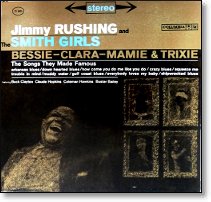 |
- Janice Borla: Promises to Burn (2013 [2014], Tall Grass): jazz singer [cd] B+(*)
- Action Bronson/Party Supplies: Blue Chips 2 (2013, Fool's Gold): hip-hop gluttony [dl] B+(**)
- Joey Badass: Summer Knights (2013, Cinematic Music Group): young jack hip-hop [r] B+(*)
- Bastille: Bad Blood (2013, Virgin): male electropop [r] B
- Charles Bradley: Victim of Love (2013, Daptone): retro soul [r] B+(**)
- Classixx: Hanging Gardens (2013, Innovative Leisure): neo-disco, but not very neo [r] B+(*)
- Matt Criscuolo: Blippity Blat (2013 [2014], self-released): mainstream sax [cd] B
- Mikal Cronin: MCII (2013, Merge): singer-songwriter with guitar [r] B+(*)
- Currensy: New Jet City (2013, self-released): yet another mixtape [dl] B+(*)
- Currensy & Young Roddy: Bales (2013, self-released): and another, smokers' special [dl] B+(**)
- Death Grips: Government Plates (2013, Third Worlds): fuck-you noise [r] B-
- Duke Ellington and His Orchestra: The Ellington Suites: The Queen's Suite/The Goutelas Suite/The Uwis Suite (1959-72 [2013], Fantasy/OJC): America's classical music [r] B+(*)
- Carol Fredette: No Sad Songs for Me (2013 [2014], Soundbrush): touch-and-go standards [cd] B+(**)
- Gardland: Syndrome Syndrome (2013, RVNG Intl): electronica from Australia [bc] B+(**)
- The History of Apple Pie: Out of View (2013, Marshall Teller): noisy pop shoegaze [r] B+(**)
- Mimi Jones: Balance (2013 [2014], Hot Tone Music): jazz funk, some vocals [cd] B+(*)
- Kool and Kass: Peaceful Solutions (2013, self-released): underground rap [bc] A-
- Machinedrum: Vapor City (2013, Ninja Tune): electronica [r] B+(*)
- Sarah Manning: Harmonious Creature (2013 [2014], Posi-Tone): not really chamber jazz [cd] B+(***)
- Moderat: II (2013, Monkeytown): German electronica, Modeselektor meets Apparat [r] B+(*)
- Moutin Factory Quintet: Lucky People (2013 [2014], Blujazz/Plus Loin Music): lush, lively postbop [cd] B+(**)
- Russ Nolan: Relentless (2013 [2014], Rhinoceruss Music): Latin-tinged sax [cd] B+(*)
- Pusha T: Wrath of Caine (2013, GOOD Music): mixtape [dl] B+(**)
- Jimmy Rushing: Jimmy Rushing and the Smith Girls: Bessie - Clara - Mamie & Trixie: The Songs They Made Famous (1960 [1961], Columbia): classic blues tunes [r] A-
- Lenny Sendersky/Tony Romano: Desert Flower (2013 [2014], LeTo): sax-guitar quartet [cd] B+(*)
- Stellar OM Source: Joy One Mile (2013, RVNG Intl): electronica [bc] B+(***)
- Marnie Stern: The Chronicles of Marnia (2013, Kill Rock Stars): postrock with a girl group echo [r] B+(*)
- Shirazette Tinnin: Humility: Purity of My Soul (2013 [2024], Hot Tone Music): jazz-funk jumble [cd] B
- Troy Ave: New York City: The Album (2013, BSB): hip-hop mixtape [dl] B+(***)
- Fernando Ulibarri: Transform (2013 [2014], self-released): guitar-piano quartet [cd] B+(*)
- We Love . . . Detroit (2013, We Love, 2CD): techno, of course [r] B+(***)
- Holly Williams: The Highway (2013, Georgiana): country [r] B+(*)
Unpacking: Found in the mail last week:
- Lena Bloch: Feathery (Thirteenth Note): March 18
- Steve Cardenas: Melody in a Dream (Sunnyside): March 4
- The Wayne Escoffery Quintet: Live at Firehouse 12 (Sunnyside): March 4
- Nir Felder: Golden Age (Okeh): January 21
- Allen Lowe: Mulatto Radio: Field Recordings: 1-4 (Constant Sorrow, 4CD)
- Shawn Maxwell: Shawn Maxwell's Alliance (Chicago Sessions)
- Danilo Perez: Panama 500 (Mack Avenue): February 4
- Noah Rosen/Alan Silva: Orchestrated Improvised Lives (Improvising Beings)
- Sonny Simmons: Beyond the Planets (Improvising Beings, 2CD)
- Daniel Smith: Smokin' Hot Bassoon Blues (Summit): February 11
- John Stein & the Mingotan Project: Emotion (Whaling City Sound): January 28
Sunday, January 19, 2014
Weekend Roundup
Some scattered links this week:
Barbara Ehrenreich: It Is Expensive to Be Poor:
Most private-sector employers offer no sick days, and many will fire a person who misses a day of work, even to stay home with a sick child. A nonfunctioning car can also mean lost pay and sudden expenses. A broken headlight invites a ticket, plus a fine greater than the cost of a new headlight, and possible court costs. If a creditor decides to get nasty, a court summons may be issued, often leading to an arrest warrant. No amount of training in financial literacy can prepare someone for such exigencies -- or make up for an income that is impossibly low to start with. Instead of treating low-wage mothers as the struggling heroines they are, our political culture still tends to view them as miscreants and contributors to the "cycle of poverty."
If anything, the criminalization of poverty has accelerated since the recession, with growing numbers of states drug testing applicants for temporary assistance, imposing steep fines for school truancy, and imprisoning people for debt. Such measures constitute a cruel inversion of the Johnson-era principle that it is the responsibility of government to extend a helping hand to the poor. Sadly, this has become the means by which the wealthiest country in the world manages to remain complacent in the face of alarmingly high levels of poverty: by continuing to blame poverty not on the economy or inadequate social supports, but on the poor themselves.
No More Mister Nice Blog: The Problem Isn't Wealth Addiction. It's Letting the Addicts Write the Laws. Starts with an op-ed by a banker whining that his bonus last year was only $3.6 million, and how he had become addicted to being filthy rich -- nothing the poor fellow can do about it. M. argues that the real problem is:
In a way, this is what we do with guns in America, at least at the national level and in the red states: we let the junkies control who can obtain the stuff, how freely it's sold, and how few restraints we can put on its exchange, by means of their unchallenged access to elected officials. With great wealth, especially over the past thirty-plus years, we've allowed the the wealthiest and greediest -- whose access to public officials is even greater than that of the gun lobbyists -- to talk us into curtailing the tax and regulatory policies that served as checks on their access to the stuff, and have thus permitted them to do massive harm to society as a result of their abuse. In a way, with wealth we have a sort of narco-state, where the cartel leaders intimidate the authorities into avoiding crackdowns on the trade. The only difference is that, in the case of wealth, it's actually empowering to be high on your own supply.
Andrew Simmons: The Danger of Telling Poor Kids That College Is the Key to Social Mobility:
The rhetoric echoes the oft-cited work of Jean Anyon, an education researcher who died in September. Studying elementary schools, Anyon looked at how schools can condition kids for positions in life. She saw that schools teaching the children of affluent families prepared those kids to take on leadership roles and nurtured their capacity for confident self-expression and argument. Schools teaching children from low-income families focused on keeping students busy and managing behavior. A middle-class school deemphasized individual expression and in-depth analysis and rewarded the dutiful completion of specified rote tasks. In each case, according to Anyon, a "hidden curriculum" has prepared students for a future role in society. Some students learn to take orders and others learn to chart a course of action and delegate responsibility. School can either perpetuate inequity through social reproduction or have a transformative effect and help students transcend it.
It's not enough for the rich that they are the beneficiaries of a political-economic system that increases inequality, they also wish to impose on everyone their insistence that inequitable returns are the standard by which people should judge their lives, and be judged by others. Pursuing knowledge for its own sake, taking satisfaction in non-monetary achievements -- those are heretical ideas that fail to show sufficient respect for moneymaking. Also worth noting that the constant harping about how higher education provides a way out for the lower classes is one of the few plausible options the system can offer. It is, however, increasingly discredited both by the high debt loads it imposes and by the efforts of the upper class to lock its privileges in.
Hedrick Smith: Boeing's power play: For decades Seattle was first and foremost among Boeing towns, and its fortunes rose or fell with the company. But then Boeing moved their corporate headquarters to Chicago, sending a message to Seattle workers that Boeing execs wouldn't feel a thing if they pulled the plug on their Seattle plants. Boeing had set up a process where they auction jobs all around the world, and they've made the state of Washington pay dearly to keep workers employed that any sane company would be proud to have. They've moved their 787 work around so far that the plane was years late. And once again Boeing is shaking down the unions for further concessions.
Boeing's stingy treatment of its highly skilled workforce offers a vivid example of how America's new economy has created gaping economic inequalities and steadily squeezed the economic life out of the U.S. middle class over the past three decades, even as corporate profits and CEO pay have skyrocketed.
Boeing's case epitomizes that sharp economic divide. For just as the company was wringing concessions from its workers, its board of directors approved a 50 percent increase in the company's stock dividend and a $10 billion stock buyback that will richly reward investors and executives who get paid in Boeing shares.
Boeing contends that it is not the first to impose such concessions but that it is merely following the market.
True enough. In 1980, 84 percent of American workers at companies with 100 or more employees received lifetime pensions from their companies, and 70 percent got health insurance fully paid for by their employers. Today, fewer than 30 percent have lifetime pensions and only 18 percent have fully employer-paid health insurance.
What these numbers mean is that every year hundreds of billions of dollars in benefit costs have been shifted from company books to the pocketbooks and checkbooks of average Americans, helping to boost corporate profits and to leave roughly half of the baby boom generation facing near poverty in retirement.
Boeing's new contract will accelerate that trend. And it's not as if hard economic times forced Boeing to slash labor costs. Its profits and demand for its planes are at record levels.
Over the past decade, Boeing rolled up more than $35 billion in profits and paid no federal corporate taxes. In fact, Boeing reaped about $2 billion in federal tax rebates from 2003 to 2012, as well as the most generous long-term state tax subsidy in U.S. history from Washington state.
Also, a few links for further study:
Juan Cole: Top Ten Things Bob Gates was Wrong about, Some Criminal: The chattering class headlines were about Gates slamming Biden and Obama for being "wrong" -- all the odder given how rarely Gates got anything right.
Brad DeLong: An Ongoing Pick-Up Internet Symposium on the 1%: Links to 15 pieces, including David Brooks' effort to brush aside The Inequality Problem and various critics of Brooks (e.g., Robert Kuttner: David Brooks's Worst Column Ever).
Kathleen Geier: Jesse Myerson throws down: five ideas that (may?) represent the left wing of the possible: Cites Myerson's Rolling Stone piece Five Economic Reforms Millennials Should Be Fighting For. The enumeration, a bit too cryptically:
- Guaranteed Work for Everybody
- Social Security for All
- Take Back the Land
- Make Everything Owned by Everybody
- A Public Bank in Every State
Adam Keller: Sharon and me: a personal view of the life, and attending deaths, of Ariel Sharon, from a longtime Israeli peace activist. Philip Weiss has been reading Sharon obituaries, here.
Saturday, January 18, 2014
Rhapsody Streamnotes (January 2014)
Pick up text here.
Wednesday, January 15, 2014
Daily Log
Laura's letter on Charles Krauthammer's anti-BDS column ran in the Wichita Eagle:
Syndicated columnist Charles Krauthammer trotted out some familiar but ridiculous arguments to attack the boycott, divestment and sanctions movement against Israeli institutions that support the occupation (Jan. 11 Opinion).
He said Israel is not as bad as China. That's the standard he wants us to judge Israel by? He also claimed we single out Israel for criticism when there are other terrible regimes. But any issue by definition is singling something out. Should we have ignored South African apartheid just because bad things were happening elsewhere?
Krauthammer also forgot to mention that Israel is singled out all the time for praise. Our government sends more than $3 billion a year in aid to Israel and vetoes every United Nations resolution (more than 100 since 1972) that criticizes Israel. In contrast, when is the last time the United States vetoed a U.N. criticism of China?
Our politicians and media constantly swear allegiance to the wonderfulness of Israel. Our Congress gives standing ovations for Prime Minister Benjamin Netanyahu despite the war crimes he leads.
So excuse me if many people think it is time to stand up for Israel's victims, the Palestinians, and, secondarily, Jews like me whose name Israel besmirches every time it claims to speak for "the Jews" while taking over more Palestinian orchards, destroying more Palestinian springs, demolishing more Palestinian homes, and maiming or killing more nonviolent Palestinian protesters.
Monday, January 13, 2014
Music Week
Music: Current count 22708 [22675] rated (+33), 573 [579] unrated (-6).
On the surface at least a relatively normal music week for me. I'm still adding lists to the metacritic file. I'm still picking out interesting-looking 2013 releases and trying to check them out on Rhapsody -- although for most of the week that was impossible, so I fell back to listening to new 2014 jazz. The interruption was due to a boot problem on my Windows Vista computer -- the only one I had working with speakers, on the assumption that it would be better for multimedia than my Linux machines. But when I pulled the Windows box out from under the desk and moved the speakers to an old Linux machine I had cobbled together from spare parts, I was able to get sound, and video, and get back on Rhapsody. I still have a lot of inaccessible download data on the Vista machine, and it's taken the Epson printer offline, but I'm operational again.
The metacritic file activity will end once I add Pazz & Jop into it: probably this week, since they missed last week's original schedule date. I've been cleaning out my hypesheet files and collecting publicist names -- I haven't had a mailing list since the early days of JCG -- and that, like everything else, is going slowly.
Seems like I'm having an unusual amount of trouble finding any new 2014 jazz releases to A-list, even though there is no shortage of high HMs -- cf. 3-star albums below from George Cables, Rob Derke, Jon Di Fiore, Pete Mills, Danny Petroni (with Frank Lacy), Dave Rempis (twice), Pete Robbins, Archie Shepp, Frank Wess, and Matt Wilson. At various points I thought half of those (Derke, Robbins, Shepp, Wilson) could make the higher grade, but for one reason or another I held them back. (Also held down some good 2-stars: e.g., Glenn Cashman, Steve Davis, David Helbock, Matt Renzi.) Nonetheless, I wound up with three A- records below, all from 2013 mop-up operations. (And by the way, two weren't even in the metacritic file when I found them -- although I had gotten a reliable tip on Kool A.D. -- and the other had appeared in only one EOY list.) That in itself makes for a pretty good week.
Just an observation, but the latest issue of DownBeat has 2.5-star pans of two records I like a lot: trad clarinetist Dave Bennett's Don't Be That Way (Mack Avenue) and fringe saxophonist Rent Romus' Truth Teller. Those records represent completely different ways for an artist to distinguish himself from the pack, and also say something about what made me different as a critic. On the other hand, everyone at DownBeat loves the new Matt Wilson album. I think it's pretty good too, but not that special.
I'm thinking I'll probably post a mid-month Rhapsody Streamnotes given how much material I've already accumulated, rather than wait for a ridiculously long post toward the end of the month. The number of records hasn't dropped appreciably yet, but I am sweating the writing less.
 |
 |
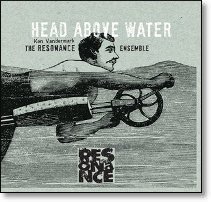 |
Records rated this week:
- T.K. Blue: A Warm Embrace (2013 [2014], Blujazz): sax/flute contrast [cd] B-
- Joshua Breakstone: With the Wind and the Rain (2013 [2014], Capri): postbop guitar [cd] B+(*)
- George Cables: Icons & Influences (2013 [2014], HighNote): piano jazz [cd] B+(***)
- Glenn Cashman's Southland Nonet: Music Without Borders (2012 [2013], Primrose Lane): big-enough band [cd] B+(**)
- Checkpoint Rock: Canciones Desde Palestina (2009, Talka): Palestinian rap, rock, and rebellion [r] B+(**)
- The Computers: Love Triangles Hate Squares (2013, One Little Indian): post-pub-rock [r] B
- Darkside: Psychic (2013, Matador): guitar house dumbed down [r] B-]
- Steve Davis: For Real (2013 [2014], Posi-Tone): trombone-sax quintet [cd] B+(**)
- Rob Derke & the NY Jazz Quartet: Blue Divide (2013 [2014], Zoho): Latin tinge [cd] B+(***)
- Jon Di Fiore: Yellow Petals (2013 [2014], Third Freedom Music): piano jazz [cd] B+(***)
- Donato Dozzy: Plays Bee Mask (2013, Spectrum Spools): ambient [r] B+(**)
- Laurel Halo: Chance of Rain (2013, Hyperdub): electronica [r] B+(*)
- Fareed Haque: Trance Hypothesis (2013, Delmark): cosmopolitan soul jazz [cd] B+(**)
- Taylor Haskins: Fuzzy Logic (2011-13 [2014], Sunnyside): artificial string jazz [cd] B-
- David Helbock's Random/Control: Think of Two (2013 [2014], Traumton): postbop child's play [cd] B+(**)
- Manika Kaur: Satnam Waheguru: The True Name (2013 [2014], self-released): Sikh kirtan vibe [cd] B+(**)
- Kool A.D.: Not O.K. (2013, self-released): unpredictable rap [bc] A-
- Logos: Cold Mission (2013], Keysound): hard, cold techno [r] B+(*)
- Lucius: Wildewoman (2013, Mom + Pop Music): alt-rock women [r] B+(*)
- Pete Mills: Sweet Shadow (2013 [2014], Cellar Live): mainstream tenor sax [cd] B+(***)
- Jeremy Pelt: Face Forward, Jeremy (2013 [2014], High Note): trumpet con fusion [cd] B-
- The Danny Petroni Blue Project: The Blue Project (2013 [2014], DPS): Jersey shore blues [cd] B+(***)
- Robert Prester: Dogtown (2013 [2014], Commonwealth Ave. Productions): loose, jumpy postbop [cd] B
- Radical Dads: Rapid Reality (2013, Uninhabitable Mansions): post-punk [r] A-
- Dave Rempis/Joshua Abrams/Avreeayl Ra: Aphelion (2013 [2014], Aerophonic): free sax trio [cd] B+(***)
- The Rempis/Daisy Duo: Second Spring (2013 [2014], Aerophonic): free sax-drums duo [cd] B+(***)
- Matt Renzi: Rise and Shine (2012 [2014], Three P's): postbop sax trio-plus [cd] B+(**)
- LeAnn Rimes: Spitfire (Curb): country [r] B+(*)
- Pete Robbins: Pyramid (Hate Laugh Music): stellar postbop quartet [cd] B+(***)
- Archie Shepp: Attica Blues Orchestra Live: I Hear the Sound (2013 [2014], Archieball): avant-soul revival [cd] B+(***)
- Tropic of Cancer: Restless Idylls (2013, Blackest Ever Black): trance verging on doom [r] B-
- Ken Vandermark/The Resonance Ensemble: Head Above Water/Feet Out of the Fire (2012-13 [2013], Not Two, 2CD): free jazz big band [r] A-
- Frank Wess: Magic 201 (2011 [2014], IPO): small group swing [cd] B+(***)
- Matt Wilson Quartet + John Medeski: Gathering Call (2013 [2014], Palmetto): pianoless quartet plus guest [cd] B+(***)
- Nils Wogram Root 70 With Strings: Riomar (2012 [2014], NWOG): chamber jazz [cd] B+(*)
Unpacking: Found in the mail last week:
- Janice Borla: Promises to Burn (Tall Grass): March 4
- Regina Carter: Southern Comfort (Sony Music Masterworks): advance, March 4
- B.J. Jansen: Ronin (ARC): March 4
- Kidd Jordan/Alvin Fielder/Peter Kowald: Trio and Duo in New Orleans (2002, NoBusiness, 2CD)
- Elly Kouri: I Love You Too Much (RBR): January 21
- David Krakauer: The Big Picture (Table Pounding): February 18
- Daunik Lazro/Joëlle Léandre: Hasparren (NoBusiness)
- Ian O'Beirne: Glasswork (self-released): January 21
- Judy Philbin and Adam Levine: Keeping It Simple (self-released)
- PJ Rasmussen: Another Adventure (Third Freedom Music): March 4
- Scenes: . . . But Not Heard (Origin): January 21
- Marc Seales: American Songs Volume 2: Blues . . . and Jazz (Origin): January 21
- Herb Silverstein: Monday Morning (self-released): January 14
- 2° Étage [Christine Wodrascka/Jean Luc Cappozzo/Gerry Hemingway]: Grey Matter (NoBusiness)
- Mikolaj Trzaska/Devin Hoff/Michael Zerang: Sleepless in Chicago (NoBusiness): CDR of LP
- YAPP: Symbolic Heads (NoBusiness): CDR of LP
Daily Log
Someone from Target got back to me, demanding that I provide the
9-digit DPCI number for the discontinued Yoplait yogurt I complained
about. I have the 10-digit UPC number, which is printed on the package,
and matched what Yoplait's website shows. DPCI is evidently an internal
inventory control code proprietary to and only used by Target.
Sunday, January 12, 2014
The Rotting Corpse of War
Charles Krauthammer wrote an op-ed for the Washington Post last week which was picked up by the Wichita Eagle. His title was New generation must confront anti-Semitism, but it had nothing to do with anti-Semitism. It was just a knee-jerk neocon reaction to a minor victory for the BDS (Boycott, Divestment, and Sanctions) movement against Israel's continuing occupation over and debasement of more than five millions Palestinians in the West Bank and Gaza. This bugs apologists for Israel like Krauthammer because it shows that their propaganda is beginning to lose its grip in America and Europe. Krauthammer doubles down with this amazing paragraph:
Given that Israel has a profoundly democratic political system, the freest press in the Middle East, a fiercely independent judiciary, and astonishing religious and racial diversity within its universities, including affirmative action for Arab students, the charge [that Israel denies academic and human rights to Palestinians] is rather strange.
Israel has no constitution, nor any fundamental guarantee of free speech or freedom of religion, and its courts, far from being "fiercely independent," rarely act to restrain the most extreme abuses of state power. Israel classifies its citizens, granting many exclusive privileges to those who are Jewish, and dividing up its Palestinian subjects into various classes based on where they live. Most of the latter have little freedom of movement, have limited economic opportunity, and are subject to arbitrary arrest without charges or due process. Worse still, they are constantly subjected to the threat of violence, and often, almost randomly, to its actuality, and not just from the various armed forces of the state but from ad hoc groups of Jewish citizens, who are rarely restrained and almost never punished for their transgressions.
Krauthammer tries to defend Israel by pointing to crimes of other countries, such as Syria's recent use of "'barrel bombs' filled with nails, shrapnel and other instruments of terror." Hard to see how that in any way exculpates Israel's air force for using white phosphorus munitions during its 2008 attack against Gaza. But Israel's affront to human rights goes far deeper than the inevitable atrocities of its numerous avoidable wars. In 1948 Israeli forces obtained a substantial Jewish majority population in its territory by driving over 700,000 Palestinians into refugee camps, and secured that majority by refusing to allow any Palestinian refugees to return to their prewar homes.
In 1951 Israel extended citizenship to those Palestinians who remained as a minority in Israel, making Israel in principle a nation of its residents, but in reality non-Jewish "citizens" of Israel were second-class, subject to military rule (until 1967) and discriminated against in numerous ways ever since. However, in 1967 Israel attacked Egypt, Syria, and Jordan, and seized substantial territories from each. Contrary to international law, Israel moved to settle and in some cases to annex the occupied territories, but in no case has Israel offered even nominal citizenship to its new subjects. As such, Israel ceased to be a nation belonging to its residents and became a state allowing one ethnographic class (Jews), with a semblance of internal democracy, to dominate, control, restrict, denigrate, and oppress its larger population.
Europe and America have long been sympathetic to Israel. They have provided vast support, especially military, which has helped Israel to persevere and to emerge as the preëminent power in the region. It's easy enough to understand why Americans, in particular, have been so enamored with Israel, but it's gradually dawning on many Americans that the regime in Israel has become deeply inimical to the principles and ideals our country was founded on and has long, publicly at least, aspired to. (In practice, America's treatment of its own native people and the long-term persistence of a racial caste system, is one thing we have in common but would prefer to think we've overcome.) Israel's propagandists get so agitated when their system of control over Palestinians is likened to South African Apartheid because they realize that history isn't on their side. Same thing with BDS, which most people associate with the struggle for equality in South Africa.
There's no doubt that sanctions can go too far. Japan, for instance, only attacked Pearl Harbor in 1941 (and invaded Indonesia) after the US shut off oil supplies. Israel's own attempt to impose "a diet" on Gaza led Hamas to launch its toy rockets into Israel. Some people, like Noam Chomsky, have opposed BDS not because they don't understand how inimical Israel has become to human rights but because they fear driving Israel to some sort of violent paranoid fit. Readers of Max Blumenthal's new book, Goliath: Life and Loathing in Greater Israel, which focuses on the extreme right in Israel and the inroads they've made on mainstream Zionist thought, will be all the more nervous in this account.
But I see two reasons why I think BDS will have a positive effect. The first is that it sends a message, or actually two: one is that the propaganda isn't working and we can see through the unfair behavior. The other is that continuing that behavior has tangible, even if not especially damaging, consequences. One big reason the right wing in Israel has gained power over the last decade is that they've managed to convince voters that no one in the west would ever push back when Israel imposed its will on the Palestinians, and left-center parties have pretty much acquiesced to that argument. BDS shows both sides that there are tangible costs now and potentially greater costs in the future, and that will help the center-left to counter against the self-destructiveness so well described in Blumenthal's book.
The other reason for pushing BDS now is that it's something small groups can do well short of gaining political power. We're a long ways from being able to turn the US government around, but the ASA -- the American Studies Association, the group Krauthammer is railing against ("an exercise in radical chic, giving marginalized academics a frisson of pretend anti-colonialism, seasoned with a dose of edgy anti-Semitism") -- is a much more practical forum, yet still one that sends the message.
Is supporting BDS anti-Semitism? The only people who see it so are those who equate the state of Israel with the Jewish people, and even then they're hard pressed to find any evidence of anti-Semitism other than a critique of the abuses of power by the armed state of Israel and its chosen people. If such people really had any concern about anti-Semitism, they wouldn't insist on equating Jews with Israel, let alone with Israel's involvement with occupation, domination, and wanton violence. But true believers in Zionism have always depended on anti-Semitism: it is the force that drives Jews to flee to Israel, the force that justifies the need to live apart from the world, the force that fuels their revenge fantasies. And if often seems like the only way they can carry on is to invent more of it.
One irony here is that Jews in the diaspora have been in the forefront of local and international movements for liberalism and socialism, for personal freedom and for social justice -- a stance which drives them increasingly to question the behavior of the Israeli state and people. The few Americans who are aware of how distorted and dehumanizing life has become in Israel, especially in its settlements and occupied territories, and who still insist on championing Israeli militarism to the hilt are on the far right here -- fascists like Krauthammer, and highly disingenuous ones at that.
Ariel Sharon, né Scheinermann, died yesterday, at age 85, although he had been incapacitated by a stroke and coma since 2006, making his earthly departure something of a non-event. Possibly the single dumbest thing that George W. Bush ever said was when he described Sharon as a "man of peace." Sharon's own autobiography, which came out about that time, was titled Warrior. He was intimately involved in every Israeli war and nearly every border skirmish and retaliatory atrocity since 1948. In 1951 he led an Israeli commando force that demolished the village of Qibya, setting a standard for flagrant abuse of power that continued unchecked until he embarrassed the IDF during the Sabra and Shatila massacres in his 1982 Lebanon War and was removed from his post as Defense Minister. After that, he worked to rehabilitate himself by promoting illegal settlements, finally became Likud party leader in 2000, wrecked the Oslo "peace process" and provoked the "Al-Aqsa Intifada," the excuse he used to viciously crush the Palestinian Authority. He was a showboating general, a flamboyant politician, a ruthless opportunist, and most likely deeply corrupt. Even when he made a step that might have led toward peace, such as his 2004 withdrawal of settlements from Gaza, he did it in such a way as to ensure that the conflict would continue. That Israel should forever be at war with everyone, not least with its own people, is his enduring legacy. It's not clear whether he would have been proud of that, but that was the only way of life he ever knew, and the only one he could stand living. He was far from the only one to have created that world -- in his youth he was devoted to David Ben Gurion and Moshe Dayan and benefited much from their favoritism -- but by the end he had come to personify and embody the wretched fruits of war.
Daily Log
Looks like Target has discontinued carrying Yoplait Thick & Creamy Vanilla Yogurt (UPC 007047000112). I wrote the following to Yoplait (in a narrow web form, so forgive the redundancy):
I've enjoyed Yoplait Custard Style Vanilla Yogurt every morning for breakfast for over 25 years. A while back you changed the packaging but Thick & Creamy Vanilla was essentially the same product, so I started buying that. My usual grocery store in Wichita KS, Dillons, stopped carrying Thick & Creamy Vanilla, so I started shopping at Target -- the only store in Wichita that continued to carry it. I went to Target (21st/Greenwich) tonight. They had none in stock, a "clearance" tag over the product tag, and told me that it was discontinued. I told them I only shop in their store because of that product, and I will never shop there again. I don't consider your "French Vanilla," which is available everywhere, to be a satisfactory product. I'm heartbroken. By the way, Target has never had trouble selling this product. I've often bought the last of their stock or left just 1-3 units. I've sometimes had to go to make a special trip to their Maize Rd. store -- the far opposite side of town. Would be best if you could talk Dillons into carrying this wonderful product. There is no acceptable substitute.
I also wrote to Target:
For more than 25 years I've enjoyed Yoplait Custard Style Vanilla Yogurt for breakfast. A while back they repackaged this as Yoplait Thick & Creamy Yogurt (6 oz. Creamy Vanilla) -- UPC 007047000112. At that time, Dillons and WalMart stopped carrying it (in favor of Yoplait French Vanilla -- wholly unacceptable in my opinion), but Target did carry the Thick & Creamy yogurt, so I started buying a substantial percentage of my groceries at Target (mostly 21st/Greenwich, sometimes on Maize Road; both are inconvenient as I live near downtown). When I went to Target tonight (21st/Greenwich), you were out, and I noticed that the shelf tag was covered up with a "Clearance" tag. When I asked I was told that you had stopped carrying the product and it would not be available in the future. I am, well, heartbroken. There is certainly no reason I should drive past 5-6 other grocery stores to shop at Target when you've stopped carrying the one product that has motivated me to do so for more than the past year.
First time I sent the above message, I got a "no permission" error message back. I tried resending (had to reconstruct the entir emessage from scratch), and added a postscript in brackets. It then objected: "Please send valid questions & comments." I removed the brackets and the message went through. Sometimes programmers are really stupid, you know.
And, what the hell, I wrote to Dillons:
About a year ago Yoplait changed the packaging on their Custard Style Vanilla Yogurt to say Thick & Creamy Vanilla Yogurt -- the new UPC is 007047000112. I had enjoyed Yoplait Custard Style Vanilla Yogurt for breakfast every day for over 25 years. When you stopped carrying it (in favor of Yoplait French Vanilla, which I regard as wholly unacceptable), I discovered that the only store in Wichita that still carried Thick & Creamy was Target. Since then I've shopped there approx. once per week, and as such moved a lot of my grocery business from Dillons to Target. Now it appears that Target has discontinued it as well. (For what it's worth, they've never had excess inventory, and I learned to time my visits around their delivery dates. I don't know why it is that given all the data you collect you retailers have so much trouble recognizing superior products.) I'm truly heartbroken, and have complained both to Target and to Yoplait (who appears to still manufacture a whole line of Thick & Creamy yogurts, although the only one I'm interested in is Vanilla). Anyhow, I thought I'd write you and note that if only you'd start carrying this wonderful product you would win my business back.
Next day I checked on Walmart's website and they claim the yogurt is in stock at several stores, including 1221 (West Kellogg). I went there, looked very carefully, and couldn't find it. I sent Walmart the following email:
Your website said this was "in stock" at store 1221. I drove there and was unable to find any trace of the item, including a shelf sticker. I was surprised to find it listed as "in stock" because I've looked for it in WalMart's yogurt section nearly every time I've been in one of your stores over the last year. This product is the successor of Yoplait Custard Style Vanilla yogurt, which I've enjoyed for breakfast nearly every day for the last 25 years. The only store in the Wichita area I've been able to find it at has been Target, but they too seem to no longer be carrying it -- I bought the last "clearance" items. You currently devote a lot of space to Yoplait's inferior "French Vanilla" product. I would be grateful if you really did start stocking Yoplait Thick & Creamy Vanilla Yogurt. At any rate you should be aware that your website is lying about your store stocks.
Thursday, January 09, 2014
The Best Non-Jazz Albums of 2013
Back on December 4, as I was finishing my Jazz Critics Poll ballot, I posted The Best Jazz Albums of 2013, my list of 74 new jazz albums and 4 reissues. Most years I have about as many non-jazz albums in my year-end lists and Pazz & Jop ballots as I have jazz, so it's reasonable to expect I could post a comparable non-jazz list. That follows here, but first some preliminary comments.
Since December 4 I've been frantically scouring year-end lists -- my main tool there is my metacritic file (and its compilations complement) -- trying to pick up much of what I had missed. I met a second deadline on December 23 when I filed my Pazz & Jop ballot (see here), which I deliberately skewed 7-3 toward non-jazz (and for that matter inserted a jazz set, William Parker's Wood Flute Songs, that I hadn't heard before the earlier ballot). Still, I kept searching out more things -- until the computer with the speakers and the software for dealing with Rhapsody and downloads crapped out on me.
This is, in any case, as good a time as any to present a year-end list. I've updated The Best Jazz Albums of 2013, which has swelled to 87 new albums + 6 reissues. Picking up a dozen new albums in a month was due to an unusual combination of factors. Some were records I wasn't aware of until they showed up in lists (Marty Ehrlich, Odean Pope, Hunger Pangs); some were late due to transatlantic shipping (Anna Kaluza, the Two Al's); some got to Rhapsody late (Mario Pavone, Ken Vandermark; Jon Lundbom is officially a 2014 release, but showed up early); and a couple were sent by musicians (Jörg Fischer, Michael McNeil -- he sent me the Paul Smoker releases).
Hard to compare this with previous years, in part because I searched back through my review files and added most of the 2012 releases that I didn't get to until 2013: 8, including one reissue, in the jazz A-list, 96 (including 4 reissues) below that. I needed to include some 2012 releases to make up for the early December ballot dates -- my number three pick, a Billy Bang record attributed to The Group, was officially released in late December (in Lithuania no less), so nobody had a chance to include it on their 2012 lists. I devised a test to decide which 2012 releases to count -- I didn't want to pick up things that I had merely been late to (Taylor Swift's Red is a good example) -- then applied it throughout (more details in the non-jazz reference file).
The Best Non-Jazz Albums of 2013 follows (see that "reference file" link for more data). The Jazz A-list is longer than the Non-Jazz one (87 to 69), but that's mostly because I wound up listening to more than twice as many jazz albums (727 to 330). It probably also helped that most of the jazz albums were on actual CDs, whereas nearly all of the non-jazz albums were reviewed on the more limited basis of a spin (or two) on Rhapsody. On the other hand, I had a lot more help finding non-jazz records: nearly everything obscure on the list can be attributed to the discoveries of one or another (sometimes several) trusted critics. (Thomas Anderson is an exception: he sent me the CD and it doesn't appear to have reached anyone else. Wayne Hancock is another.) But I picked four records up from Jason Gross' EOY list; Daniel Wohl (and probably others) from Jason Gubbels; King DJ from Lucas Fagen; several items from Michael Tatum and even more from Robert Christgau (Yo Ma Ma and Robert Sarazin Blake were especially long stretches).
Of course, there were also many good records by relatively well known artists, and thanks to Rhapsody I was able to check most of them out. I've heard 45 of the top-50 metacritic file records (all except: My Bloody Valentine, Bill Callahan, Run the Jewels, Fuck Buttons, John Grant), and 39 of the next 50 (not heard: Mikal Cronin, Laura Mvula, Blood Orange, Unknown Mortal Orchestra, Beyoncé, Jagwar Ma, Daniel Avery, Juliana Barwick, Thee Oh Sees, Moderat, Charles Bradley). It gets spottier after that, as well it should. There are dozens, maybe even a hundred or two, more albums below that to seek out, few of which we'll ever get to. After all, another year is coming.
Insert text from main section of The Best Non-Jazz Albums of 2013 here.
Again, full info here:
Jazz, and Non-Jazz.Daily Log
On of my "things to do" has been to respond to Sergio Piccirilli's annual poll. In the past he's sent a reminder near the deadline, but didn't this year, and it looks like I blew their deadline. Here's some quickie answers -- no doubt left important people out, but everyone here deserves mention.
- Musician of the year: William Parker, Ivo Perelman, Billy Martin
- Newcomer Musician: Jonathan Finlayson, Matt Mitchell
- Group of the year: Mostly Other People Do the Killing, The Resonance Ensemble
- Newcomer group:
- Album of the year: Billy Martin's Wicked Knee: Heels Over Head (Amulet); Mostly Other People Do the Killing: Slippery Rock (Hot Cup); William Parker: Wood Flute Songs (AUM Fidelity).
- Composer:
- Drums: Jim Black, Tyshawn Sorey, Michel Lambert
- Acoustic Bass: William Parker, Adam Lane, Mario Pavone
- Electric Bass: Chris Morrissey, Tommy Babin
- Guitar: Luis Lopes, Anders Nilsson, Raoul Björkenheim
- Piano: Irène Schweizer, Myra Melford, Marilyn Crispell
- Keyboards/Synthesizer/Organ: Albert van Veenendaal
- Tenor Saxophone: David Murray, Jon Irabagon, Ellery Eskelin
- Alto Saxophone: Oliver Lake, François Carrier, Dave Rempis
- Baritone Saxophone: Brian Landrus, Mats Gustafsson
- Soprano Saxophone: Mike Ellis, Brent Jensen
- Trumpet/Cornet: Steven Bernstein, Peter Evans, Taylor Ho Bynum
- Clarinet/bass clarinet: Ben Goldberg, Waclaw Zimpel, Mort Weiss
- Trombone: Roswell Rudd, Steve Swell, Jacob Garchik
- Violin/Viola: Jenny Scheinman, Jason Kao Hwang
- Cello: Erik Friedlander
- Vibraphone: Warren Smith, Jason Adasiewidz
- Electronics: Kieran Hebden
- Others instruments:
- Female Vocals: Sheila Jordan, Fay Victor
- Male Vocals: Van Morrison, Freddy Cole
- Best Live Band:
- Record Label: Clean Feed, NoBusiness, Intakt
Mailed this off to Piccirilli, just for his information. Presumably it won't be counted, but that's his business. In my defense, he usually sends out a nag letter, but none this year.
Created my "frozen" 2013 list, adjusting the boilerplate at the file top per last year (and fixing some mistakes in the 2012 file from when I did it a year ago). I never actually look at those frozen versions, but I do note the color-coding in the regular files, which I continue to update for one year. Quite a few updates to the 2012 file this year. I've been through the year-end best-of files, and think they're basically ready to post today.
Monday, January 06, 2014
Music Week
Music: Current count 22675 [22655] rated (+20), 579 [572] unrated (+7).
Jazz Prospecting is indefinitely suspended. Only way I can see bringing it back is if someone steps forward and offers me a paying gig writing a variant on the Jazz Consumer Guide format, and it has enough visibility and support to let me run it as I've long wished I could. I don't see much chance of that happening. At this point Robert Christgau is unable to get a sponsor for his Consumer Guide, and as his former editor pointed out to me: jazz is such a tiny bit of the market -- so tiny the outfit that last supported Christgau wouldn't even consider it.
Even so, I would have to decide that it is more worthwhile to spend my remaining time sorting out records than working on my long-procrastinated book project, Share the Wealth -- resurrecting the old Huey Long campaign theme, but with wrinkles and reverberations he never imagined. Still, one thing I like about the line is that it wasn't just a slogan: it came with an organization (better still, "clubs"), and it also came with a theme song. My major weakness as a jazz (or rock) critic was that I always suspected I should be doing something else, so I never put the effort into really mastering music writing. For instance, I was struck recently by a post by W. Royal Stokes where he reviews 135 Jazz, Blues, and Beyond Books Published in the Past Year or So. I've read (roughly) similar numbers of books in the last year (or two), but none of them have been on music. (Of course, expertise only goes so far: I'd take my 2013 list over Stokes' recommendations any day.)
This doesn't mean I'm going to stop listening to music, or even stop writing about it. I expect to continue with Rhapsody Streamnotes at least once a month, and I'll fold anything I might have written for Jazz Prospecting or Recycled goods into it. A week after I posted December's column (with 77 records in it) I have 25 notes more/less ready for next month. I expect the pace to slow down: I've been stuck in a mental rut trying to wrap up 2013, but that will wind down after Pazz & Jop posts on January 8th -- traditionally the last thing I do to my metacritic file is to fold in the Pazz & Jop results. (Meanwhile, I've been adding lists steadily: the file is now up to 7037 new records, and the reissues/vault jobs file is up to 1028 entries.)
Now may be the last chance I get to post metacritic file results before Pazz & Jop, so this is how the current standings go:
- Kanye West: Yeezus (Def Jam) {264}
- Vampire Weekend: Modern Vampires of the City (XL) {202}
- Daft Punk: Random Access Memories (Daft Life/Columbia) {186}
- Arcade Fire: Reflektor (Merge, 2CD) {183}
- My Bloody Valentine: MBV (Pickpocket) {172}
- The National: Trouble Will Find Me (4AD) {163}
- The Knife: Shaking the Habitual (Mute) {150}
- Haim: Days Are Gone (Polydor) {149}
- Savages: Silence Yourself (Matador) {139}
- James Blake: Overgrown (Polydor) {138}
- Arctic Monkeys: AM (Domino) {137}
- Nick Cave and the Bad Seeds: Push the Sky Away (Bad Seeds) {136}
- Disclosure: Settle (Island) {134}
- David Bowie: The Next Day (Sony Music Entertainment) {132}
- Chance the Rapper: Acid Rap (self-released) {129}
- Janelle Monae: The Electric Lady (Bad Boy) {126}
- Boards of Canada: Tomorrow's Harvest (Warp) {125}
- Queens of the Stone Age: . . . Like Clockwork (Matador) {123}
- Kurt Vile: Wakin on a Pretty Daze (Matador) {122}
- Jon Hopkins: Immunity (Domino) {105}
- Danny Brown: Old (Fool's Gold) {104}
- Chvrches: The Bones of What You Believe (Virgin/Goodbye) {104}
- Laura Marling: Once I Was an Eagle (Ribbon Music) {104}
- Bill Callahan: Dream River (Drag City) {101}
- Julia Holter: Loud City Song (Domino) {101}
- Lorde: Pure Heroine (Lava/Republic) {101}
- Earl Sweatshirt: Doris (Columbia) {100}
- Oneohtrix Point Never: R Plus Seven (Warp) {99}
- Deafheaven: Sunbather (Deathwish) {95}
- Neko Case: The Worse Things Get, the Harder I Fight, the Harder I Fight, the More I Love You (Anti-) {93}
- El-P/Killer Mike: Run the Jewels (Fool's Gold) {91}
- Deerhunter: Monomania (4AD) {86}
- Parquet Courts: Light Up Gold (What's Your Rupture?) {86}
- Drake: Nothing Was the Same (Cash Money/Republic) {84}
- Factory Floor: Factory Floor (DFA) {82}
- Fuck Buttons: Slow Focus (ATP) {82}
- Atoms for Peace: Amok (XL) {79}
- Rhye: Woman (Polydor) {78}
- Justin Timberlake: The 20/20 Experience (RCA) {78}
- Waxahatchee: Cerulean Salt (Don Giovanni) {78}
- Phosphorescent: Muchacho (Dead Oceans) {76}
- Tim Hecker: Virgins (Kranky) {75}
- Kacey Musgraves: Same Trailer Different Park (Mercury Nashville) {75}
- Yo La Tengo: Fade (Matador) {75}
- MIA: Matangi (Interscope) {74}
- John Grant: Pale Green Ghosts (Bella Union) {72}
- These New Puritans: Field of Reeds (Infectious) {72}
- Darkside: Psychic (Matador) {70}
- Forest Swords: Engravings (Tri Angle) {69}
- James Holden: The Inheritors (Border Community) {69}
- Tegan and Sara: Heartthrob (Vapor/Warner Bros) {68}
- Foals: Holy Fire (Warner Bros) {66}
- Nine Inch Nails: Hesitation Marks (HALO) {66}
- Foxygen: We Are the 21st Century Ambassadors of Peace and Magic (Jagjaguwar) {63}
- Mikal Cronin: MCII (Merge) {62}
- Pet Shop Boys: Electric (X2) {62}
- Sky Ferreira: Night Time, My Time (Capitol) {61}
- Pusha T: My Name Is My Name (Def Jam) {61}
- King Krule: 6 Feet Beneath the Moon (True Panther/XL) {60}
- The Flaming Lips: The Terror (Warner Bros) {59}
This file has generally been pretty indicative of Pazz & Jop performance, although it doesn't attempt to match the Voice's profile for voters, so certain skews are well known: P&J has very few UK (or for that matter non-US) voters, so artists who are weaker in the US tend to underperform (likely examples here: James Blake, Arctic Monkeys, Bill Callahan, John Grant, probably David Bowie, maybe Nick Cave); token hip-hop/R&B, and to a lesser extent pop, artists tend to do better in P&J (Chance the Rapper, Janelle Monáe, Danny Brown, Lorde, Drake, MIA; Lady Gaga and Miley Cyrus will do better but both are way off the pace, at 245 and 182 respectively); older mainstream artists have usually done better in P&J (e.g., Dylan, Springsteen), but it's hard to see who's close enough to be helped this time (David Bowie?). I think it's very likely that at least two of this year's breakout country women will crack the top forty (Kacey Musgraves, Ashley Monroe, Brandy Clark).
(By the way, I've looked at a lot of disagreeable lists, but Jim Farber's in the New York Daily News is easily the worst I've seen all year -- among other problems, it's the first I've seen that even mentions Natalie Maines, whose record he touts as the year's best.)
Aside from the metacritic file, I'm also updating the "Best Jazz" list originally posted a month ago to reflect what I've found since (quite a bit), and when I'm done I'll have a "Best Non-Jazz" piece to go with it. Historically, the two splits have been fairly evenly matched, but this year the jazz side is ahead 85-69 (A- or above) and 726-305 (B+ or below; both are new records including belated 2012 grades; non-jazz leads in the old music categories 39-25). I'll post these pieces later this week, at which point I'll do my annual list freeze. And I'll wrap up the metacritic file when I fold the Pazz & Jop results into it -- the results are due January 8.
Also on my schedule is to send out a letter to many of the publicists who have been sending me records, after which I expect they'll stop. (Actually, some have stopped already. Also, I don't have a definitive list, so some will no doubt learn from here, if they bother at all.) I've already covered most of this in the revised version of the file formerly titled "Send Me Music to Review." One thing I will point out there is that there remains a small residual value in still sending me stuff: I will continue to publish "Music Week" every Monday, and it will have a current rated count up top and a list of the week's newly rated albums, as well as the old "unpacking" feature, toward the bottom. Likewise, those of you who tune in each week for consumer guidance will at least get the latest grades. (Reviews, such as I bother to write, will wait for the month's Rhapsody Streamnotes.)
Arguably that's not much, but it won't take much effort beyond what I would do anyway. How valuable it turns out to be will depend previously ungraded music I listen to -- something I have no way of predicting at the moment. But I do hope this provides those who value my judgment -- I'm especially grateful for those who wrote in recently -- some reason to stay in touch.
One thing I've already discovered in compiling the recently rated list is that it would be useful to provide at least a genre tag and a source: cd=CD, r=Rhapsody, bc=Bandcamp, etc. In theory, the list below should add up to match the delta above. This week has been particulary dicey in that I had pulled much of this together after the fact this week. Mostly listening to records from 2013 EOY lists here, although I did get distracted by two Barry Guy/LCJO records I had missed.
 |
 |
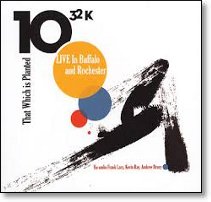 |
Records rated this week:
- JC Brooks & the Uptown Sound: Howl (Bloodshot): Chicago soul [r] B
- Ari Brown: Groove Awakening (Delmark): mainstream sax [cd] B+(***)
- Buika: La Noche Más Larga (2013, Warner Music Latina): Flamenco jazz diva [r] B+(*)
- The Child of Lov: The Child of Lov (2013, Domino): trip hop [r] B+(*)
- Dub Club: Foundation Come Again (Stones Throw): dub (duh!) [r] B+(**)
- Kahil El'Zabar's Ritual Trio: Follow the Sun (Delmark): polyrhythms and blues [cd] B+(**)
- The Fat Babies: 18th & Racine (2013, Delmark): trad jazz [cd] B+(***)
- Barry Guy/London Jazz Composers' Orchestra/Irène Schweizer: Theoria (1991 [1992], Intakt): free jazz monster + piano [r] B+(*)
- Barry Guy/London Jazz Composers' Orchestra/Irène Schweizer/Marilyn Crispell/Pierre Favre: Double Trouble Two (1995 [1998], Intakt): free jazz monster + two pianos [r] B+(**)
- Angel Haze: Dirty Gold (2013, Republic): hip-hop [r] A-
- Honey Island Swamp Band: Cane Sugar (2013, Louisiana Red Hot): Southern rock [r] B
- Hookworms: Pearl Mystic (2013, Weird World) post-Velvets [r] A-
- Carolyn Lee Jones: The Performer (2013, Cat'nround Sound): standards [cd] B+(***)
- Juicy J: Stay Trippy (2013, Taylor Gang/Kemosabe/Columbia): rap [r] B+(*)
- London Grammar: If You Wait (2013, Warner/Chappell): trip-pop [r] B+(*)
- Cava Menzies/Nick Phillips: Moment to Moment: makeout jazz [cd] B+(***)
- Juana Molina: Wed 21 (2013, Crammed Discs): Argentine singer-songwriter [r] B+(*)
- No Joy: Wait to Pleasure (2013, Mexican Summer): shoegaze [r] B+(*)
- Katy Perry: Prism (2013, Capitol): megapop [r] B+(*)
- Pharmakon: Abandon (2013, Sacred Bones, EP): noise [r] B+(*)
- Quadron: Avalanche (2013, Vested in Culture): Danish nu soul [r] B+(**)
- Lee Ranaldo and the Dust: Last Night on Earth (Matador): singer-songwriter [r] B
- Brandon Ross/Stomu Takeishi: For Living Lovers: Revealing Essence (Sunnyside): guitar moods [cd] B
- Anton Schwartz: Flash Mob (2013 [2014], Anton Jazz): postbop [cd] B
- Edward Simon: Venezuelan Suite (2012 [2014], Sunnyside): Latin jazz [cd] B+(**)
- E. Doctor Smith: Quantum (2013, Edgetone): fusion [cd] B
- 10^32K: That Which Is Planted: Live in Buffalo and Rochester (2013, Passin' Thru): trombone trio [cd] A-
- Randy Travis: The Influence Vol. 1: The Man I Am (Warner Brothers): country covers [r] B
- Steve Treseler Group: Center Song (2013 [2014], Creative Music Adventures): postbop [cd] B+(*)
- The White Buffalo: Shadows, Greys & Evil Ways (2013, Unison Music): Americana [r] B+(**)
Unpacking: Found in the mail last week:
- Ari Brown: Groove Awakening (Delmark)
- Kahil El'Zabar's Ritual Trio: Follow the Sun (Delmark)
- The Fat Babies: 18th & Racine (Delmark)
- Carol Fredette: No Sad Songs for Me (Soundbrush): February 11
- Craig Handy: Craig Handy & 2nd Line Smith (Okeh): advance, January 21
- Fareed Haque: Trance Hypothesis (Delmark)
- Mimi Jones: Balance (Hot Tone Music): February 4
- 10^32K: That Which Is Planted: Live in Buffalo and Rochester (Passin' Thru)
- Camille Thurman: Origins (Hot Tone Music): February 4
- Shirazette Tinnin: Humility: Purity of My Soul (Hot Tone Music): February 4
Daily Log
Found in VICE's intro to its top 50 list:
According to Billboard, something like 75,000 albums are released each year, and that's not counting stuff your dirtbag cousin throws on Bandcamp. With an average running time of 45 minutes per record, the average human could listen to music 24 hours a day, 365 days a year, and not make a dent.
All this mathy stuff illustrates that year-end lists are based 100% on taste. There is no canon of pop music, and anyone who says there is most likely just wants to keep his job as a music journalist. So allow us to present our taste, in order, as collected in 12 issues of VICE Magazine over the past year. Before you get all pissy in the comments and accuse us of neglecting HAIM, Chance the Rapper, Jon Hopkins, or whatever garbage you think deserves critical respect, keep in mind that A) 99% of all music is terrible, B) some of these reviews are on the top 50 because we liked the review, not the band, and C) we really, really, really don't care.
 |
Dec 2013 |